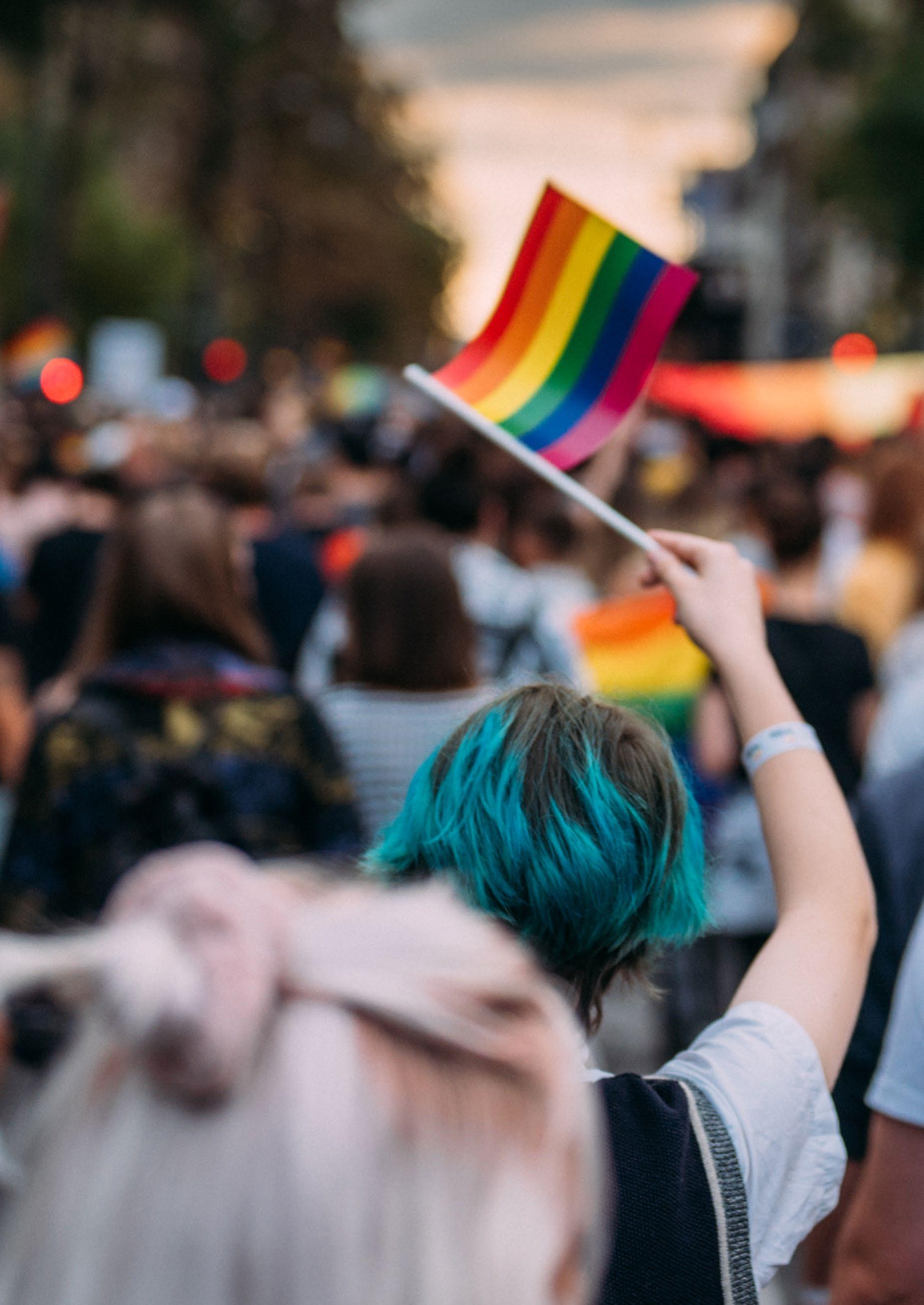UNDERSTANDING THE STATE OF GLOBAL LGBTQI + PERSECUTION
GLOSSARY
ACTIF Act Together for Inclusion Fund
ATCR Annual Tripartite Consultations on Resettlement
CAR Caribbean
CDC Centers for Disease Control and Prevention
DNC Dignity Network Canada
EE Eastern Europe
ERC Equal Rights Coalition
ETS Emergency Travel Support
GRSI Global Refugee Sponsorship Initiative
HRD Human Rights Defender
IDP Internally Displaced Person
ILGA International Lesbian, Gay, bi-sexual, Transexual and Intersex organization
LA L atin America
LGBTQI+ Lesbian, Gay, Bisexual, Transgender, Queer, Intersex, Plus
MENA Middle East and North Africa
NA North America
OCEA Oceania and Pacific Islands
RCUSA Refugee Council USA
SCA South-Central Asia
SOGIESC Sexual Orientation, Gender Identity and Expression, and Sex Characteristics
SSA Sub-Saharan Africa
STCA Safe Third Country Agreement
UNHCR United Nations High Commissioner for Refugees
WE Western Europe
A MESSAGE FROM OUR CEO.
2022 was a year of significant change.
As we launched our annual report last year, we reflected on the enduring impact of COVID-19, the outbreak of major geopolitical crises, a global rise in homophobia and transphobia, and a significant number of requests for help. These factors still impact us today. Alongside these challenges, we navigated Russia’s invasion of Ukraine and a crackdown against LGBTQI+ rights defenders in Chad, amidst the global landscape of 100 million forcibly displaced people, the highest on record. These and many other factors led to action last year.
Last year, we received nearly 10,000 requests for help.
This is an overwhelming number. Last year, we supported 4,560 people. And yet I know first hand that there are many others waiting for an update on their case. Managing this volume of requests is a new challenge for us, and it will require us to update and invest in how we work. I am also proud to see the resilience of our movement, and the increasing momentum in our global advocacy for LGBTQI+ rights.
2022 marked a year where Rainbow Railroad increased its international profile, and received recognition from governments and multilateral bodies. In June 2022 I
was invited to the White House for the annual Pride celebration. A few months later, I returned to witness the signing of the Respect for Marriage Act, a major step forward in protecting LGBTQI+ rights.

In Canada last year, I addressed the Special Committee on Afghanistan about the continued need for support for LGBTQI+ Afghans. Following that, I was invited to meet the Minister of Immigration, Refugees and Citizenship with a trans Afghan activist we supported. He shared his story in his own words with the Minister.
In November 2022, we hosted a reception in Ottawa with our partners at Dignity Network Canada. We provided some of our
key international partners the opportunity to address Canadian government officials directly. Members of Parliament from four major political parties also spoke at the event.
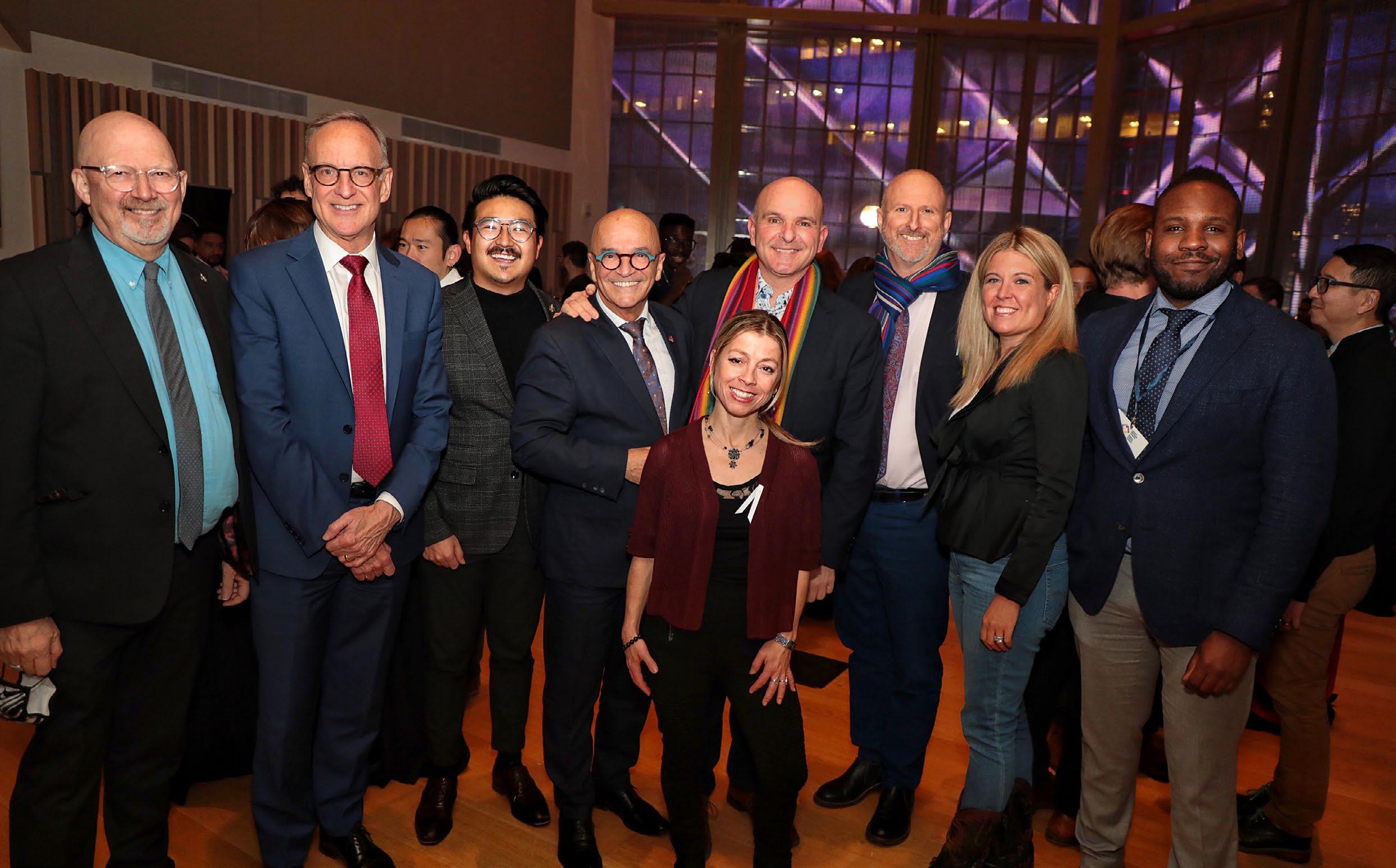
By December 2022, we announced a partnership with the Government of Canada to bring over 600 Afghans to safety in Canada. The enduring impact of the Taliban takeover of Afghanistan looms large over our work. In 2022, Afghans fleeing the Taliban formed a third of our total requests for help, and we continue to work with States and civil society organizations around the world on a coordinated response to this crisis.
Rainbow Railroad continues to be a voice in regional spaces, like the Eastern Caribbean Alliance for Diversity and Equality (ECADE) DATA conference in Barbados, and the National Immigrant Inclusion Conference in Washington DC, maintaining our grassroots approach to partnerships and advocacy, while strengthening our organization to lead at the international level. We are
building durable partnerships with multiple governments and making significant strides toward accomplishing some of our longterm advocacy goals.
But there’s more work to be done. We continue to advocate for ongoing direct referral partnerships with the Canadian and US governments. And ongoing geopolitical crises around the world demonstrate the need for governments to have proactive plans, allowing for nimble responses to situations we know have a disproportionate impact on LGBTQI+ communities.
In the United States, our ongoing dialogue with the US government to bring more LGTBQI+ people into the country made significant progress: the announcement of a new community sponsorship model in the United States, Welcome Corps. This Program, where the government announced Rainbow Railroad as a key partner, has the potential to allow us to bring hundreds of LGBTQI+ persons to the U.S. However, as we
implement this program and advocate for a referring partnership, our data also points to a disturbing trend: people in the U.S also seeking our assistance. At the same time, in 2022, the United States was in our top 10 countries where LGBTQI+ people were requesting help — a 64% increase from 2021. Navigating these tensions is the daily reality of our work.
While we advocate to work with governments, we will also continue to queer and subvert systems and speak out against injustice affecting the right of asylum which is supposed to be recognized under international law.
We were interveners speaking out at the Canadian Supreme Court against Canada’s Safe Third Country Agreement (STCA), which prevents asylum seekers in the US or Canada from making asylum claims across the border.
This year’s annual report will once again provide insights into the obstacles we face and the substantial impact of what we have accomplished together. The global state of LGBTQI+ persecution can feel insurmountable, and our work a never-ending challenge. Still, as you read this report, I hope you will continue to be inspired by our collective impact.
I am energized to continue this work alongside a dedicated and hardworking team of staff, partners and advocates which now span the globe in support of this work. And I am thankful for you. The world seems scary right now, but I also know that together, we must maintain our collective hope, passion, and commitment to the work of global LGBTQI+ liberation.
KIMAHLI POWELL he/him Chief Executive Officer Rainbow Railroad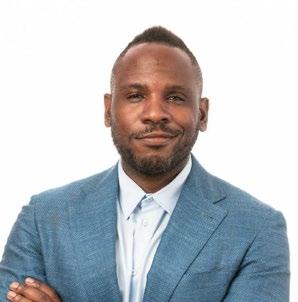
UNDERSTANDING OUR WORK.
UNDERSTANDING OUR PERSPECTIVE
In order to best understand our data, it is important to also understand how we collect it. We track both our total requests for help from LGBTQI+ individuals as well as data specific to the individuals supported by Rainbow Railroad. Data concerning LGBTQI+ individuals is a complex and iterative process, and we hope that by sharing this information, we can provide more insight into the state of LGBTQI+ persecution around the world.
Our data is subject to a few specific limitations:
Much of the data presented here comes from the assessments of the individuals who reach out to us. Typically, more concerns are uncovered as we work with a person over time. Because we have limited resources, we cannot always assist each person who reaches out to us, meaning some people are likely experiencing more safety or health and wellness concerns than we capture. This means that any trends we identify in this report from our data are likely underreported.
Rainbow Railroad receives requests for help from people around the world. However, requests for help reflect how intersecting forces of marginalization result in our services being most accessible to cisgender gay men. To mitigate the overrepresentation of certain demographics in the data, we have disaggregated some data by location, sexual orientation, gender identity and expression, and sex characteristics (SOGIESC) information, and age. Despite our best efforts to indicate where regional trends impact our data, in 2022, requests for help from Afghans fleeing the Taliban formed a third of our total requests for help, and must also be considered when viewing the data.
Rainbow Railroad's work is, by nature, limited in scope, both in terms of whom we interact with and where they are located. Additionally, factors such as limits to what people feel they can safely disclose to us, their perceptions about whom Rainbow Railroad helps, and their ability to access our services cannot be fully accounted for in our data.
The analysis of the health and welfare and safety concerns provided in this report is based only on the individuals who requested help, even if other LGBTQI+ members of their families have also faced persecution and subsequently received our support. Our most detailed data surrounds the primary applicant and we provide limited information on dependents; providing another source of underreporting. This data also only contains information from those that have voluntarily elected to share it with us - meaning not every individual requesting our assistance has disclosed the vectors of their persecution.
These requests for help include both verified cases and those which we have not yet verified through interviews and documentary evidence. In that sense, we cannot independently corroborate all of the reported concerns. However, trends between verified c ases and c ases which are not yet verified are broadly consistent.
As such, this data is not generalizable or representative of all LGBTQI+ displaced and at-risk persons. Nevertheless, despite these limitations, given the limited data available on a hard to reach community, this report sheds light on patterns in human rights violations and protection concerns which can inform policy responses and offer a window into the unique experiences of this particularly vulnerable population. Our goal is that our data plays a role in addressing the broader gap in international forced displacement and LGBTQI+ rights research.
If you are interested in accessing the anonymized data that was used to produce this report, you c an submit a request and justification to info@rainbowrailroad.org.
PROGRAM SUMMARY
Although we received a large volume of requests for help, we have also been able to help many people. Through emergency travel support and our complementary programs, we have been able to provide support to 4,560 people.
OUR WORK
Our core program is Emergency Travel Support (ETS). This program provides lifesaving resources and travel support to help persecuted LGBTQI+ individuals access pathways to safety in other countries.
Since 2006, through ETS, we have supported 1,470 people from over 30 countries in their journeys to find safety. Our ETS program provides direct financial support to individuals from the time we contact them through to their arrival in a safer country where many of the individuals we support exercise the right to claim asylum. This financial support covers basic expenses such as travel costs, accommodation, medical care, access to essential medicines, documentation requirements, legal fees, and other basic needs.
IN 2022, WE HELPED 339 PEOPLE THROUGH EMERGENCY TRAVEL SUPPORT
While our work through Emergency Travel Support has a great impact, the reality is that as the number of requests increase, it is increasingly challenging to move all of the LGBTQI+ people who reach out to us to a safer country. This is why we also provide five complementary programs to increase the breadth of our support for individuals facing state-sponsored violence and SOGIESC persecution.
OUR 5 COMPLEMENTARY SUPPORT PROGRAMS
1. CASH ASSISTANCE
2. PARTNERSHIPS
3. CRISIS RESPONSE
4. INFORMATION SERVICES & REFERRALS
5. COMPLEMENTARY PATHWAYS
PROGRAM ONE: CASH ASSISTANCE
Support from this program includes direct financial assistance, provision of accommodation, and support through access to medical care, essential medicines, and in-country relocation. For many of the individuals who reach out to us for help, there are no routes to a safer country due to a variety of factors such as passport mobility restrictions placed on citizens from certain countries, carrier sanctions, and racialized, religious or ethnic discrimination. We leverage Program One when there is no civil society organization that we can partner with on the ground to provide direct assistance to those at risk. In 2022, we were able to provide 53% more support to individuals through this program compared to the year prior.
286 individuals were supported through this program in 2022.
PROGRAM TWO: PARTNERSHIPS
Our partnership program allows us to collaborate with local human rights defenders (HRDs), activist networks, and grassroots organizations that are positioned to provide us with on-the-ground insights, verification, identification information, and logistical support, as well as healthcare support for impacted individuals, the provision of shelter and operation of safehouses, and legal advocacy. We also support these individuals and organizations in capacity building as they work to strengthen the global LGBTQI+ rights movement in their countries.
Thanks to our investment in global partnerships and our work with these partners, 2,828 LGBTQI+ individuals received assistance through Program Two in 2022. We also partnered with 27 different organizations in 17 different countries.
PARTNERSHIP TYPE OF INDIVIDUALS SUPPORTED
PROGRAM THREE: CRISIS RESPONSE
Our crisis response program monitors and responds to sudden statesponsored persecution against LGBTQI+ individuals. Crisis situations may emerge in the midst of political instability, mass detentions, and government-led arrests of LGBTQI+ persons. Through our data and by leveraging our network of partners and human rights defenders around the world, we monitor crisis-prone environments.
Our crisis response work overlaps with several of our other programs and support for LGBTQI+ individuals facing a crisis can range from Emergency Travel Support (ETS), application and document support for government-sponsored pathways, support for organizations onthe-ground, and cash assistance for individuals in imminent danger.
In 2022, we tracked and responded to crises in Afghanistan, Chad, Mexico, and Ukraine. We supported 986 LGBTQI+ individuals facing crisis situations.
We supported 106 LGBTQI+ individuals with mental health support, information, referrals, and supplementary resources in 2022.
PROGRAM FIVE: COMPLEMENTARY PATHWAYS
Complementary pathways are pathways for refugees to access safety that exist in addition to traditional avenues of resettlement which assist the most vulnerable. These pathways involve working directly with governments. This includes our work on the private sponsorship of refugees program (PSR) through the Rainbow Refugee Assistance Partnership in Canada. We also continue to pursue opportunities with other countries, such as the United States and Argentina, to build private sponsorship opportunities for LGBTQI+ refugees.
Recognizing the difficulty of finding safe routes for many at-risk LGBTQI+ people through our ETS program, complementary pathways allow us to prioritize refugees with the most limited
access to traditional resettlement options such as trans individuals, and lesbian and bisexual women. As COVID-19 border restrictions eased, we started seeing movement again on cases we submitted to this program over the lastthreeyears,withmoreindividualsarrivingin Canadaforpermanentresettlement.Eachyear, we submit 10 private sponsorship applications forLGBTQI+refugees.Applicationsincludethe primary candidate as well as their partner and any dependents. In 2022, our 10 applications represented 14 people.
Wesubmitted10newprivatesponsorship applications with community settlement partners in Canada in 2022 and welcomed 14 LGBTQI+ individuals to Canadathroughthisprogram.
The support for LGBTQI+ individuals facing crisis situations includes application and document support for government-sponsored pathways, support for organizations on-the-ground, and cash assistance for individuals in imminent danger.
PROGRAM FOUR: INFORMATION SERVICES & REFERRALS
This program provides essential resources, mental health support, and advice to LGBTQI+ people facing violence and persecution. Through this program, we are also able to refer individuals to other organizations best positioned to support their needs and provide letters of support for individuals relocating to new countries. For many individuals, community makes a difference - and we are proud to operate in community with the LGBTQI+ individuals seeking our assistance.
5
Through our six different programs, in 2022 Rainbow Railroad supported 4,558 LGBTQI+ individuals facing direct persecution for simply being who they are.
SECTION 3
OUR DATA.
In 2022, 9,591 people requested help from Rainbow Railroad. This is the highest number of requests the organization has ever received in one year. In order to ensure that we are understanding the drivers that cause LGBTQI+ individuals to seek assistance from us, it is important for us to analyze who is requesting assistance and where they are requesting assistance from.
REGIONAL BREAKDOWN
Our requests for help are categorized into the following regions: Caribbean (CAR), Eastern Europe (EE), Latin America (LA), Middle East and North Africa (MENA), Sub-Saharan Africa (SSA) North America (NA), Oceania and Pacific Islands (OCEA), South and Central Asia (SCA)1, and Western Europe (WE).
In 2022, the top region requesting help was South-Central Asia, with 3,930 individuals seeking assistance. 71% of requests (2,802 total requests) from this region originated
from Afghans who continue to seek our assistance from Afghanistan, Pakistan, and surrounding countries amid the Taliban’s control of Afghanistan. The Middle East and North Africa and Sub-Saharan Africa remain the top request locations following SCA. Requests from Eastern Europe increased 204% between 2021 and 2022. This increase is attributed mainly to the RussiaUkraine War, with 80% of the requests from EE originating from individuals located in Russia or Ukraine.
REGIONS OF REQUEST
South-Central Asia
Middle East & North Africa
Sub-Saharan Africa
Eastern Europe
Caribbean
Latin America
North America
Western Europe
TOP 10 NATIONALITIES & COUNTRIES OF REQUEST
In 2022, the brutal treatment of LGBTQI+ Afghans continued under Taliban rule. As a result, Afghans submitted the highest number of requests for help last year and Afghanistan was the number one country from which individuals requested help overall.
Notably, last year the United States appeared for the first time in our top 10 countries of request with 273 individuals seeking assistance in 2022 - a 64% increase compared to the year prior. This number includes 162 requests from US Nationals. Turkey is also a new addition to this list with 408 requests in 2022 - an 11% increase from 2021. Both Turkey and the United States are also destination states for LGBTQI+ individuals seeking safer pathways: a reminder of the duality of certain countries as places of both refuge and danger for the LGBTQI+ community.
Navigating this tension is a reality of our work. As we work to develop new pathways to safety, we continue to consider how different LGBTQI+ individuals’ experiences of safety are affected by their unique intersecting identities. It is important to understand that there are vast inequalities in access to safety even within a single country.
Rainbow Railroad defines a “country of request” as the country where an individual is living at the time of their request for help. In comparison, “country of nationality” refers to the country where an individual was born or where they hold legal documents. It should be noted that while the United States appears as a Top 10 Country of Request, it does not appear as a Top 10 Nationality in our requests, as almost 40% of the individuals seeking assistance from the United States are refugees in the U.S. from another country.
SEXUAL ORIENTATION, GENDER IDENTITY, GENDER EXPRESSION & SEX CHARACTERISTICS
Recognizing that data collection on persons with diverse SOGIESC is complex, we collect this data from individuals who choose to disclose their identity. Our caseworkers ensure that evolving identities are captured and updated.
Our data is disaggregated into the following gender identities: Agender, Aliagender, Cis-Women, Cis-Men, Genderfluid, Gender N on-conforming, Intergender, Intersex, Transgender Women, and Transgender Men.
In 2022, the top three gender identities requesting help were cisgender men, cisgender women, and transgender women. The proportion of cisgender men has been decreasing steadily since 2020, when this category constituted 70% of all requests. While all gender identities experienced an overall increase in requests for help in 2022, intergender, intersex, and agender individuals increased at a higher rate - which tracks with a rising and concerning trend of anti-Trans violence, legislation, and sentiment globally.

Cisgender men, cisgender women, and transgender women are also the top three gender identities who received programmatic support from Rainbow Railroad in 2022. Cisgender men constituted 59% of the individuals receiving support, while cisgender women and transgender women ranked second and third at 14% and 12% respectively. As we strive to support all SOGIESC identities, Rainbow Railroad also increased our support for transgender and gender diverse individuals. Compared to 2021, we were able to help four times as many transgender
women, transgender men, and genderfluid individuals in 2022. We also continue to prioritize cis women, trans and nonbinary individuals in our vulnerability assessment model, designed to balance the cultural and sociopolitical contexts of the individuals who reach out seeking our assistance.
It should be noted that we do not track the gender identities of individuals assisted through our partnership work, and Rainbow Railroad continues to prioritize the funding of trans-serving organizations globally.
GENDER IDENTITY OF SUPPORTED INDIVIDUALS
We also disaggregate our data by the following sexual orientations: Asexual, Bisexual, Gay, Heterosexual, Intersex, Lesbian, Pansexual, Queer, and Straight.
Gay, bisexual, and lesbian individuals remain the top three sexual orientations requesting help from Rainbow Railroad. While the proportion of pansexual individuals remained the same as in 2021, the total number of requests increased by 103%. Requests from intersex individuals also increased notably, with a 78% increase between 2021 and 2022.
While we acknowledge that ‘intersex’ is not a sexual orientation and not always a gender identity, but rather a description of certain sex characteristics, intersex individuals only formed 1% of our total requests for help. Intersex individuals face unique harms due to state- and sociallyenforced sex-gender binaries, but there are also overlaps in the discrimination and persecution experienced by intersex persons and other communities we serve. Grouping and comparing their experiences ensures we are able to include intersex persons in our data analysis.
Similar to our data on individuals requesting help, gay and lesbian individuals comprised the top two sexual orientations receiving assistance from Rainbow Railroad in 2022.
Queer individuals formed the third most supported category at 13% of our supported individuals. This is followed by bisexual individuals at 8%.
Our SOGIESC data represents the identities disclosed by the primary contact on a case file. We also capture this information for additional case members — dependents, partners, or family members of the primary case individuals. In cases where this information was disclosed, 61% of additional case members identified as either bisexual, gay, lesbian, or queer. 54% of additional case members identified as
cisgender men, followed by 38% identifying as cisgender women. Transgender women and gender non-conforming individuals formed the remaining 8%.
It should be noted we do not capture the sexual orientation data of individuals supported through partnerships, but we prioritize organizations that serve individuals of a variety of sexual orientations.
AGE BREAKDOWN
The majority of our requests for help continue to come from individuals between the ages of 18 and 35. In 2022, we also received 30 requests for help from individuals under the age of 18, who we ask to reach out to us again when they reach 18 years of age.
INDIVIDUALS & FAMILIES REQUESTING HELP
Individuals continue to form the majority of requests for help to Rainbow Railroad. In 2022, 80% of requests were from individuals - an increase from 74% in 2021. As a result, 72% of the cases we supported in 2022 were also individuals. The remaining 28% of supported cases were families with 2 to 8 people. This percentage also includes 25 dependents who were supported in 2022.
Of the families requesting help in 2022, 35% originated from Afghans living in Afghanistan, Pakistan, and neighboring countries, followed by Russians (7%), and Jamaicans (5%). The majority of requests from families of 7 to 9 individuals originate from Afghanistan with requests also originating from various countries in Sub-Saharan Africa, and the Middle East and North Africa. Larger family sizes are often indicative of contexts of mass movement, such as armed conflict. Of the families that Rainbow Railroad supported in 2022, Jamaicans, Russians, and Tunisians formed the top three nationalities supported.
Individuals between the ages of 18 and 35 are also Rainbow Railroad’s most supported age group, with 83% of supported individuals comprising this category. It should be noted that we do not always track the age of individuals supported, including through our partnerships program.
STATUS IN COUNTRY OF REQUEST
In order to better understand LGBTQI+ persons experiencing forced displacement, Rainbow Railroad categorizes individuals requesting help into the following statuses within their country of request: citizen, permanent resident, temporary resident, no legal status 3 , asylum seeker, and UNHCR registered refugee. This information is important for understanding where individuals fit into the international forced displacement landscape, and informs our advocacy as we are able to identify the specific barriers our clients face when navigating the global asylum system.
Citizen: A citizen is a person who, by place of birth, nationality of one or both parents, or naturalization is granted full rights and responsibilities as a member of a nation or political community.
Permanent Resident: A person who has been granted lawful permanent residency in a certain country but is not a Citizen. PR comes with a set of responsibilities and rights.
Temporary Resident: A foreign national who is legally authorized to enter and live in a certain country for temporary purposes. (Work, studies, etc)
No Legal Status: Someone who comes from outside of the country without legal status of immigration on a temporary or permanent basis. This is sometimes also referred to as undocumented immigrant, uninsured person or person without status.
Stateless Person: A person is “stateless” if no State considers them a citizen. States have specific obligations towards their citizens and grant citizens significantly more rights than non-citizens. Since no State recognizes them, stateless persons are deprived of many basic rights and have no State to protect them.
Asylum Seeker: An asylum seeker is a person who has left their country and is seeking protection from persecution and serious human rights violations in another country, but who hasn’t yet been legally recognized as a refugee and is waiting to receive a decision on their asylum claim.
UNHCR Reg. Refugee: Refugees are persons who are outside their country of origin for reasons of feared persecution, conflict, generalized violence, or other circumstances that have seriously disturbed public order and, as a result, require international protection.
REQUESTS FOR HELP
In 2022, 62% of requests came from citizens requesting help from within their own country. Of the 38% of requests coming from individuals outside their country of nationality, only 4% had UNHCR registered refugee status, meaning, they had formal documented recognition of their refugee status. As noted by the UN High Commissioner for Refugees (UNHCR), “A person does not become a refugee by virtue of a recognition decision by the host country or UNHCR, but is recognized because he or she is a refugee. In other words, the recognition decision is declaratory: it acknowledges and formally confirms that the individual concerned is a refugee.”4 This distinction is important in our work and informs our practical approach to providing vital assistance to at-risk LGBTQI+ persons around the world.
Individuals with no legal status comprised 21% of requests received in 2022. With 1,101 total requests from individuals with no legal status, this category increased by 496% between 2021 and 2022. The increase is largely due to the increase of Afghans in hiding in Pakistan, Iran, and neighboring countries. This poses a unique challenge as pathways to safety for individuals with no legal status are the most difficult to provide. As a result, in 2022, just 6% of individuals supported by Rainbow Railroad had no legal immigration status.
The majority of support was provided to individuals in their country of request who were citizens (42%), permanent residents (20%), or UNHCR registered refugees (13%).
DRIVERS OF DISPLACEMENT
When individuals reach out to Rainbow Railroad for support, we track the specific threats to safety, health and welfare that they are facing throughout their journeys. These concerns are categorized as Health and Welfare Concerns and Safety Concerns; this data collection is constantly evolving as we learn more about the people we serve.
Health and Welfare Concerns refer to factors relating to physical and mental wellbeing that also put people at risk.
WHERE ARE PEOPLE FLEEING?
Looking at the data across categories of immigration status, we can see patterns of countries with extreme LGBTQI+ persecution resulting in forced displacement, such as Iran, Uganda and Afghanistan. However, due to restrictions on freedom of movement, barriers to seek asylum or resettlement, and regional prevalence of homophobia and
UNHCR REFUGEE
Iranians in Turkey (59 requests)
Ugandans in Kenya (54 requests)
Congolese (DRC) in Uganda (38 requests)
STATELESS PERSON

Iranians in Turkey (18 requests)
Ugandans in Kenya (16 requests)
Rwandans in Uganda (10 requests)
transphobia, people at risk are often find their only option is to flee to another country which is safer for them, but still not completely safe, such as Turkey, Kenya and Pakistan. Tragically, despite the dangers for LGBTQI+ people in Uganda and Iran, some individuals from other countries have also sought refuge there to evade persecutors in their home country.
ASYLUM SEEKER
Iranians in Turkey (11 requests)
Afghans in Pakistan (10 requests)
Ugandans in Kenya (6 requests)
NO LEGAL STATUS
Afghans in Pakistan (518 requests)
Afghans in Iran (112 requests)
Ugandans in Kenya (47 requests)
In 2022, we tracked 16 Health and Welfare Concerns impacting the lives of the individuals we serve. Safety Concerns are direct threats individuals encounter from their family, community or the state. In 2022, we tracked 34 Safety Concerns.
These are extreme examples of the violence, persecution, rejection, and discrimination faced by LG BTQI+ people all over the world, and the unfortunate reality faced by the individuals seeking our assistance.
WE TRACK THE FOLLOWING 16 HEALTH AND WELFARE CONCERNS:
• Chronic Disease
• Disability
• Employment discrimination
• Health status discrimination
• HIV Positive
• Experiencing Homelessness
• Housing discrimination
• Lack of Basic Needs
• Lack of income due to COVID-19
• Lack of Income due to discrimination
• Low literacy
• Mental Health Concerns
• Poor Physical Health (incl. STI)
• Pregnant
• Risk of Suicide
• Self Harming
WE ALSO TRACK THE FOLLOWING 34 SAFETY CONCERNS:
• Acid attack
• Active Arrest Warrant
• Arson on home/business
• Beat up/Shot at/Chopped
• Blackmailing
• Community rejection
• Community violence
• Conversion therapy
• Date baiting
• Detained multiple times
• Detained once
• Ethnic persecution
• Exorcism
• Family-based rejection (non-violent)
• Family-based violence
• Genital Mutilation
• Human trafficking
• In hiding due to credible threat
• Intimate partner violence
• Kidnapping
• Marriage under duress
• Medical Violence
• Police brutality
• Publicly outed/humiliated
• Religious persecution
• Sexual violence/crime
• Stoning/Lashing (punishment)
• Threat of conversion therapy
• Threat of Forced Marriage
• Verbal threats/ abuse
• Violence related to sex work
• Was denied medical care
• Whistle blower
• Xenophobic violence
HEALTH & WELFARE CONCERNS
In 2022, 2,219 individuals reported on their health and welfare concerns. Our data suggests that many individuals reaching out to us experience Health and Welfare Concerns that impact many critical aspects of their lives.
Lack of basic needs, mental health concerns, risk of suicide, and homelessness continue to be the top health and welfare concerns that individuals requesting help are facing. In 2022, Rainbow Railroad also started tracking employment discrimination and found that this issue affected 12% (258 total cases) of individuals.
RECOGNIZING THE RESILIENCE OF THE LGBTQI+ COMMUNITY
“Now that I have relocated, I can say I’m safer because I can live my truth without having to be constantly looking over my shoulders or worrying of being hunted. Building life here in France is a bit difficult especially with the language barrier. However, with hard work and dedication, it will get better. For my future, I would like to be more involved in helping persons who are in the situation I was in in whatever way I can and to advocate more for the rights and concerns of LGBTQI+ members.”
– Ronaldo, Jamaican living in France
“There are some difficulties for sure, but after all things considered, we are very pleased to be here. I would like to pursue my dream of becoming a musician and my partner has started with his furniture painting job. We feel really hopeful about the future. But of course, we are still waiting for our procedure5 to end. We have a long way to go. It is never too late to start over.”
– Anonymous Case Individual from Turkey
35 % LACK OF BASIC NEEDS
32 % MENTAL HEALTH CONCERNS
15 % EXPERIENCING HOMELESSNESS 5 “Procedure” in this instance refers to this individual and their partner’s asylum claim.
12 % EMPLOYMENT DISCRIMINATION
5 MOST REPORTED HEALTH & WELFARE CONCERNS 27 O UR DATA 26 RAINBOW RAILROAD 2022 ANNUAL REPORT
SAFETY CONCERNS
In 2022, 2,813 individuals reported on their Safety Concerns.
A new Safety Concern that Rainbow Railroad started tracking in 2022, 52% (1460 individuals) of individuals requesting our help reported experiencing community rejection, which applies to individuals who are intentionally excluded from participating in spaces or groups due to their diverse SOGIESC identity. Family-based rejection and violence also persist, affecting 45% and 24% of individuals respectively.
LGBTQI+ people continue to face violence and threats to their safety. Last year, 28% of individuals reported life-threatening violence and 25% reported verbal threats and/or abuse.
WHAT DOES SAFETY MEAN TO THOSE WE SUPPORT?
“For me safety means freedom of expression without persecution, inclusion, respect and acceptance. Currently, my level of safety is 100. No longer am I just described as a lesbian, but acknowledged as a person, a woman, a mother, a daughter, and a sister and rightfully so. I can introduce my partner as such without being judged and can openly show affection without scrutiny and the fear of being in danger. I can finally express myself freely.”
– Elceta, Jamaicanliving in
Germany52% COMMUNITY REJECTION
45% FAMILY-BASED REJECTION
28% LIFE-THREATENING VIOLENCE
25 % VERBAL THREATS & ABUSE
25 % FAMILY-BASED VIOLENCE
“To me safety is a surrounding. To be able to sleep without fear. Go out without fear here. After we claimed asylum and were sent to an open camp we did not feel safe at all. It is horrible for LGBTQI community at the camps. We felt all the starings and judgement. We were not safe at all. We changed camps and finally we are with a host family. And we feel safe.”
– Anonymous Case Individual from Turkey
SECTION 4
CRISIS RESPONSE.
SUPPORTING THE LGBTQI + COMMUNITY DURING THE RUSSIA-UKRAINE WAR
While geopolitical crises and instability affect all communities, LGBTQI+ individuals face heightened vulnerability and unique challenges against the broader displacement forces. February 24, 2022, served as a poignant example of the dangers LGBTQI+ individuals face during a crisis, as Russia launched a full-scale invasion of Ukraine to seize power in Kyiv and territory in eastern Ukraine6. In 2021, 0.2% of Rainbow Railroad’s requests for help originated from Ukrainians, while Russians constituted 1.3% of requests. Requests for help from Ukrainians and Russians to Rainbow Railroad increased by 860% in 2022 (144 total requests). The spike in requests from both countries has persisted into 2023, as the war continues.
At Rainbow Railroad, we see constant reminders of the vulnerabilities uniquely faced by the LGBTQI+ communities during times of mass displacement. When mass displacement crises break out, due to their economic vulnerabilities, health and mental health concerns, violence, and other forms of discrimination faced, LGBTQI+ people remain uniquely vulnerable. Since the onset of the crisis, Rainbow Railroad has partnered with LBGTQI+ organizations in the region who are actively working to support the LBGTQI+ individuals who were impacted. In 2022, our partners provided support to both LGBTQI+ Russians and Ukrainians through shelter, relocation support, and cash assistance.
As the toll of the war mounted across Ukraine, previously dormant LGBTQI+ organizations remobilized, while active organizations pivoted their programs to focus on the emergency response. Working with partners in the region providing on-theground assistance, it became clear that the conflict continues to have unique impacts on LGBTQI+ individuals, who face barriers to accessing mainstream humanitarian assistance. Partners monitored the changing conditions, flagging specific challenges for LGBTQI+ individuals, including economic hardship due to the lack of jobs, evacuation and shelter challenges for gay and bisexual men deprioritized in general evacuation efforts by the government as a result of forced conscription, and access to medication and healthcare.
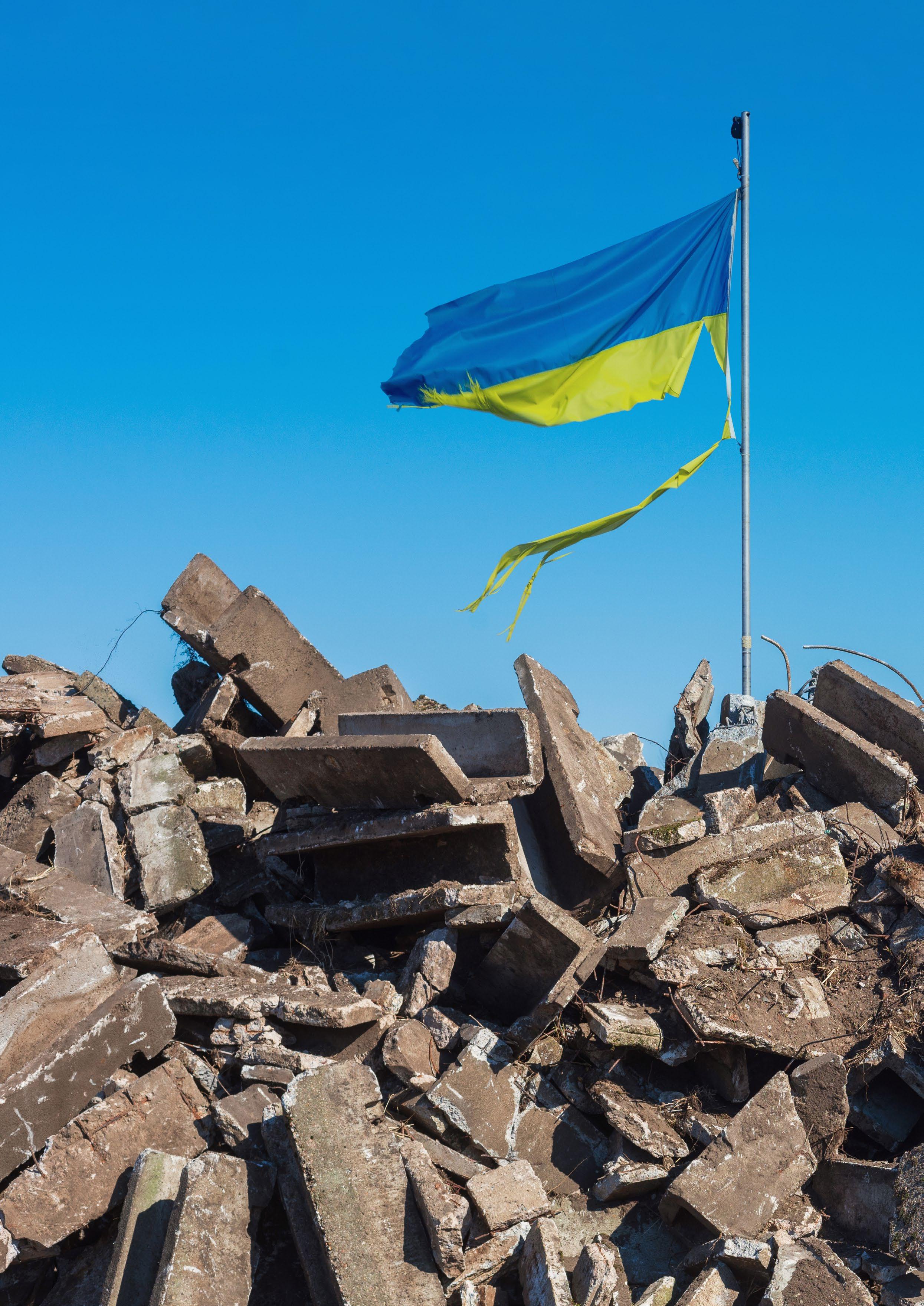
One partner, a Ukrainian LGBTQI+ organization working in a region geographically close to the front line, provided vital assistance
to LGBTQI+ individuals and families, including cash assistance, food, medicine, and relocation support. Another partner, Alliance.Global, reported on the challenges of working amid a full-scale invasion: constant blackouts, curfews, communication difficulties, aerial alarms, periodic missile attacks, and attacks by combat drones. Despite these challenges, they managed to provide shelter, basic needs, and cash assistance to LGBTQI+ individuals with a focus on internally displaced persons (IDPs) from occupied regions, persons on the front line, and persons returning to governmentcontrolled territories. Through their work, Alliance.Global received the following testimonial from one of the individuals they supported:
“My name is Oleksandr. Because of the war, I lost not only my native home but also my relatives and friends. I felt terribly depressed and thought about committing suicide. But during this difficult period for me, saviors appeared – workers from Alliance. Global Poltava, now my friends, who helped me with the most necessary things in the darkest period of my life and support me even now. I'm very grateful to them and their sponsors for their support and help, as well as the opportunity to make new friends thanks to the work of the community center in Poltava".
While the LBGTQI+ community in Ukraine faced a Russian invasion, LGBTQI+ Russians likewise encountered increased danger due to government persecution that was prevalent long before the outbreak of war.
Allison, G., & Davidson, K. (2023, February 23). Russia-Ukraine Report Card. Retrieved from Belfer Center for Science and International Affairs: https://www. belfercenter.org/publication/russia-ukraine-report-cardLeading up to February 24, 2022, Rainbow Railroad received an average of seven requests for help per month from Russia. The month following the start of the invasion saw a 943% increase, with 73 requests during March 2022 alone. The situation continued to worsen as the conflict progressed. On the day Russian President Vladimir Putin announced a “partial mobilization” draft on September 21, Rainbow Railroad received seven requests for help five of which were from transgender women attempting to flee oncoming conscription. By the end of 2022, requests from Russians had increased by 238% (378 total requests) from the year prior, making Russia number three in requests for help by nationality. We continue to support the LGBTQI+ community by working with partners to relocate individuals when possible.
Requests from LGBTQI+ Russians highlighted their struggle to seek refuge from being forced to participate in a war that many did not want and a country that rejected who they were as people. Vishkan, a gay man from Russia who relocated to Canada with Rainbow Railroad’s support in 2017, described this battle as wanting freedom from the oppression that had dictated his life in Russia, and the freedom to choose his own responsibilities. Connecting recently with Rainbow Railroad, he stated,
“I am now at the most exciting stage of my life. After many people's opinions on my identity, I realized I am independent and free from all rules. I am ready for everything new and ready to fight for human rights! Here, [in Canada], there is more responsibility. I think more about global problems: what will be left behind for the next generation; environmental and cultural issues of the entire planet's population! In this, it is very different from Russia. I'm going through an exciting experience with Canada's diversity and how respectful [everyone] is! I'm a dreamer. I hope for freedom of speech and equality for people of all genders!”7
RESPONDING TO AFGHANISTAN
Since the fall of Kabul to the Taliban on August 15, 2021, LGBTQI+ people have continued to face severe persecution, including physical assaults, sexual violence, and reported unlawful killings. From August 2021 onward, Rainbow Railroad facilitated the relocation of 264 Afghans for resettlement to safer countries. We also provided 648 Afghans with financial assistance, shelter support, mental health support, and other forms of assistance. Discrimination against LGBTQI+ people in Afghanistan is not new, but requests for help grew exponentially under the Taliban, where LGBTQI+ people are systematically tracked down, threatened, abused, and even killed. While LGBTQI+ people were subjected to harm before the Taliban takeover, individuals reported that the intensity and severity of persecution increased markedly under the Taliban regime. LGBTQI+ people now live in hiding while painfully few resettlement options are available, and the wait times required for those spots can take months or years. Moreover, the sheer volume of requests from Afghan refugees and the logistical, financial, and legal challenges of navigating and providing aid within a war zone made crisis response for LGBTQI+ individuals in Afghanistan particularly challenging.
To pressure the Canadian government to respond to the crisis, we organized a months-long advocacy campaign titled #SafeWayOut. The campaign aimed to increase expedited resettlement pathways for LGBTQI+ refugees, particularly Afghans. Initiatives that bolstered our campaign included hosting a webinar on the first anniversary of the take-over to mobilize our supporters, addressing Members of Parliament to advocate for increased opportunities for LGTBQI+ Afghan resettlement, meeting with the Minister of Immigration, Refugees and Citizenship alongside an Afghan resettled by Rainbow Railroad, and publishing and presenting internal research on the experiences of LGBTQI+ Afghans through the lens of our requests for help database.
I realized I am independent and free from all rules. I am ready for everything new and ready to fight for human rights!"
In January of 2022, we supported the release of “Even If You Go to the Skies, We’ll Find You” with Human Rights Watch and Outright International, a report detailing the unfolding situation in Afghanistan and its impact on LGTBQI+ persons. On May 20, 2022, Rainbow Railroad launched the #SafeWayOut campaign To mobilize and galvanize our community of supporters for effective action. That same day, Kimahli spoke at the 13th meeting of the Canadian Parliamentary Special Committee on Afghanistan to advocate for expedited resettlement pathways for LGBTQI+ Afghans through a partnership with Rainbow Railroad. By June, the campaign had received thousands of signatures. Kimahli’s address resulted in two of our recommendations being emphasized and published by the Special Committee: calling for a direct referral partnership and the capacity to evacuate 300+ LGBTQI+ Afghans.
By July, Rainbow Railroad had met with Immigration, Refugees and Citizenship Minister Sean Fraser to convince the government to open the door for the opportunity to assist more Afghans. During this meeting, we brought Aseer, a trans Afghan refugee, to tell his story face-to-face with the Minister of Immigration, Refugees and Citizenship.
Before moving to Canada with the assistance of Rainbow Railroad, Aseer spent 45 days hiding in a windowless storage room in the back of a pharmacy before eventually escaping to a house in Pakistan. Recounting his meeting with Minister Fraser, Aseer told CTV News about the meeting, “I was trans, I had tattoos, I had a governmental job, so I was the highest person in [the Taliban’s] list.” He continued, “I feel safe here finally… After 26 years, I feel safe.”
By September 2022, Rainbow Railroad had received more than 5,400 requests for help from Afghanistan. Without official routes to safety for those requesting help, we continued to provide non-monetary and monetary assistance. We operated safe houses in nearby countries for those able to escape. As a final push, we released the “No Safe Way Out” report. This research report was based on 1,739 requests for help submitted to Rainbow Railroad from August 2021 to August 2022 by Afghans who were in Afghanistan at the time they made their request. Individual accounts included in this report detail the multiple tactics used by the Taliban to identify and find LGBTQI+ people, including social media photos or videos, during searches of belongings and cellphones at checkpoints, and through emboldening community members to surveil and report on LGBTQI+ people. A young gay man requesting help said,
“The Taliban have taken over, they are abducting suspected gays, and you never see them again. Because of the way I talk and behave, it's not hard to spot me. It's hard for me to walk around now. Before the Taliban, I was just alone, and lonely, at least my life was not in danger. I have no hope. I have almost given up. Sometimes I get the urge to go public about it, with a pride flag in my hand, and scream as I walk through the streets of Kabul, “I am Gay!” If my family finds out they would be the ones to kill me, no need of Taliban. So... I am Afghan, I am Gay. I love to play chess. I love to paint and make drawings. I had dreams to bring a change in Afghanistan. I don't expect to be rescued. I just know it won't happen. I just want someone to know that I existed.”

By December, our persistent advocacy resulted in a new step forward. Our comprehensive crisis response and targeted advocacy campaign resulted in Immigration, Refugees and Citizenship Canada (IRCC) pledging to resettle approximately 600 Afghans in partnership with Rainbow Railroad, doubling the amount that we initially requested months prior in front of the Special Committee and is in addition to the 230 LGBTQI+ Afghans Rainbow Railroad had already helped to resettle. Not only were we successful in providing crisis relief to many individuals in need, we also successfully advocated for additional pathways to help more LGBTQI+ Afghans reach safety.
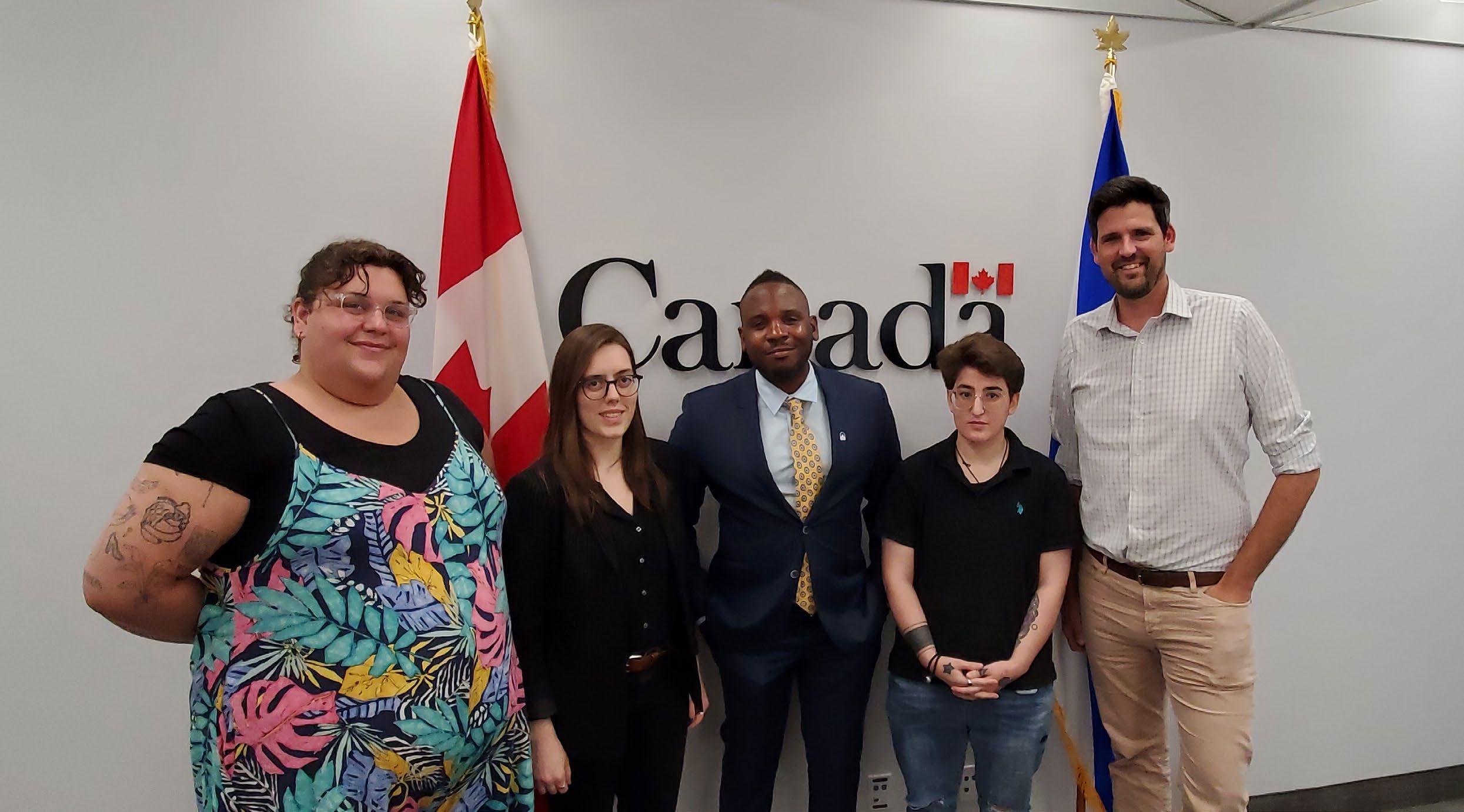
I had dreams to bring a change in Afghanistan. I don't expect to be rescued. I just know it won't happen. I just want someone to know that I existed."
"
CRACKDOWN IN CHAD
Since the death of former Chadian President Idriss Déby in 2021, the transitional government headed by his son, Idriss Déby, has brutally repressed opposition groups and civil society. Protesters have taken to the streets on multiple occasions to call for a return to democratic governance, but State forces have killed, wounded and detained protesters in mass arrests. Although same-sex relations have been criminalized for decades, violence against LGBTQI+ people has also significantly intensified in recent years.
In 2017, LGBTQI+ activists sought to register an organization to support their community and advocate for LGBTQI+ rights in Chad, but the government used registration as a pretext to intimidate and target organization members. Activists were threatened to remain silent and renounce their LGBTQI+ identity. Since 2019, 22 members of the organization have been detained without charges or trial. In 2020, several members of the organization went missing or were found dead, including one who died from injuries from a brutal castration. In 2021, Chadian intelligence agents buried one of the organization members alive and sent the video to his family. Following the October 2022 protests, imprisoned LGBTQI+ activists and newly imprisoned protestors were transferred to a notorious prison.
Rainbow Railroad has been in close contact with LGBTQI+ activists in Chad, seeking to provide support through funding regional relocation and housing and advocating with governments and UN agencies for pathways to get them to a country where they can resettle. They have faced obstacles obtaining refugee status due to homophobia in neighboring countries. These are some of the most harrowing cases we have ever seen.
One of the activists, still waiting for resettlement, shared his story and perspective:
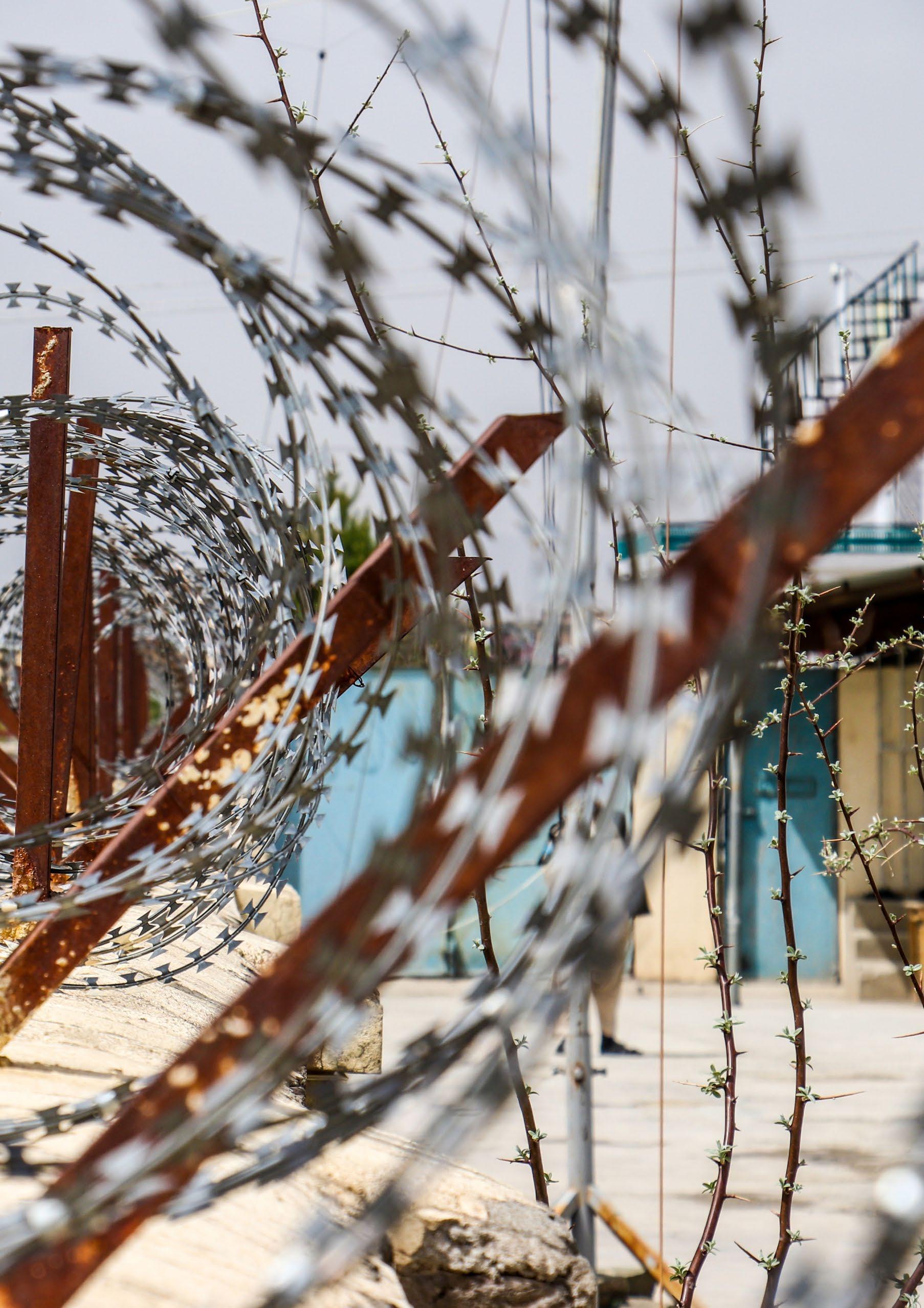
In Chad, being LGBTQI+ is taboo. People often do not even selfidentify as gay because it’s so hard to tell anyone. None of the local newspapers talk about LGBTQI+ issues, and leaders ostracize people who engage in any discussion on LGBTQI issues. LGBTQI+ people face discrimination in all aspects of life. If your identity is known, schools may expel you, landlords refuse to rent to you, and employers fire you. LBQ women are particularly vulnerable to rape by religious leaders, family members and police. LGBTQI+ people are scapegoated for anything that goes wrong in the country. If the spring rain is late, then religious leaders will preach that it is the fault of LGBTQI+ people. If the bank is late with paychecks, then things didn’t go smoothly because of gay people. If a woman only gives birth to girls, then that is because of a gay family member, who should be killed.
When our organization was formed, LGBTQI+ people started seeing each other and getting together. It was an opportunity to start creating a Chadian queer culture. We came up with strategies to connect and know each other, like congregating in a garden along with straight allies who could give us an alibi. But the violence made it impossible to stay. My hope for the future is that eventually, I can support LGBTQI+ people not only in Chad but also beyond, being part of the Rainbow Railroad network to help other people get to safety. We have been rejected by our families and by our country, but the family that we have is our community and the Rainbow Railroad family and support network.
"
THE BACKLASH FOLLOWING
THE WORLD CUP IN QATAR
WHAT LGBTQI+ ACTIVISTS ON THE GROUND NEED YOU TO KNOW
The 2022 FIFA World Cup in Qatar was a significant concern for the LGBTQI+ community in the Middle East due to the oppressive homophobic system and the well-meaning, but ultimately insensitive, western "solidarity" actions. Despite representing a form of progress, as a highly anticipated global event finally happening in the Middle East in an Arab Muslim country, the World Cup has highlighted the ongoing struggle for LGBTQI+ rights in the region. 8 In Qatar specifically, Rainbow Railroad saw a 56% increase in requests for help from 2021 to 2022, and in MENA as a whole, in 2022 there was a 29% increase in requests from help when compared to 2021.
According to activists, western media's critical narrative on the persecution of LGBTQI+ persons in MENA countries like Qatar has ironically reinforced regional stereotypes and prejudices against the community, failing to acknowledge the complex cultural and religious factors that inform the region's social and legal attitudes. As Cairo52 reported, "This World Cup, the Biggest Loser was LGBTQ+ People in the Middle East and North Africa."9 Western media's coverage of this issue has been largely shallow and devoid of the necessary nuance that the subject matter requires.
This narrative has had negative implications for local LGBTQI+ communities, as it has further fueled a cultural and religious backlash against sexual and gender minorities. Rainbow Railroad believes it is important to acknowledge the nuances of the cultural and religious context in which LGBTQI+ individuals live in the MENA region, and works collaboratively with local activists and organizations to affect positive change. LGBTQ+ activists and organizations in the MENA region are fighting for LGBTQI+ rights despite the challenging legal and social environment, and Rainbow Railroad has supported various groups in 2022, from a trans-led organization in Lebanon to a Turkish LGBTQI+ organization providing earthquake relief for refugees.
As one activist quoted in an article published by My Kali Magazine explains, "We need to focus on creating change from within, rather than relying on outside pressure. We need to work on building bridges with our families, communities, and policymakers, and slowly but surely create the conditions for change."10
We spoke with Mohammad Al-Wazani, also known as MJ, a former CI of Rainbow Railroad who relocated from Bahrain to the US in early 2020. MJ shared his views on the global reactions to the World Cup being hosted in Qatar, noting the following:
"Hosting the World Cup in Qatar is a good step, but as a gay guy, I will never go there and be out there...it’s too risky to be gay there. I know a lot of friends who were caught and jailed just for being gay. I lost my job because I had a homophobic boss. The reality of LGBTQ+ people in the Gulf region is extremely harsh. The region lacks resources specific to tackle issues related to LGBTQ+ people. It feels as if we do not have a voice there. I am glad that I was able to get supported by RR’s team. It was a lifeline. I was brought to a place where I can wake up every day and be who I am with who I love. I have never understood what it would be like to live as my authentic self.”
Younes, R. (2022, July 7). A World Cup of Shame: FIFA Fails LGBT Rights Test in Qatar. Retrieved from Human Rights Watch: https://www.hrw.org/news/2022/07/07/ world-cup-shame-fifa-fails-lgbt-rights-test-qatar
Noralla, N. (2023, January 21). This World Cup, the Biggest Loser was LGBTQ+ People in the Middle East and North Africa. Retrieved from Cairo 52: https://cairo52. com/2023/01/18/this-world-cup-the-biggest-loser-was-lgbtq-people-in-the-middle-east-and-north-africa/ 10 Tamim. (2023, 21 January). Queer Qataris and the World Cup: A Critique of the Western Media Storm. Retrieved from My.Kali https://www.mykalimag.com/ en/2023/01/21/queer-qataris-and-the-world-cup-a-critique-of-the-western-media-storm/
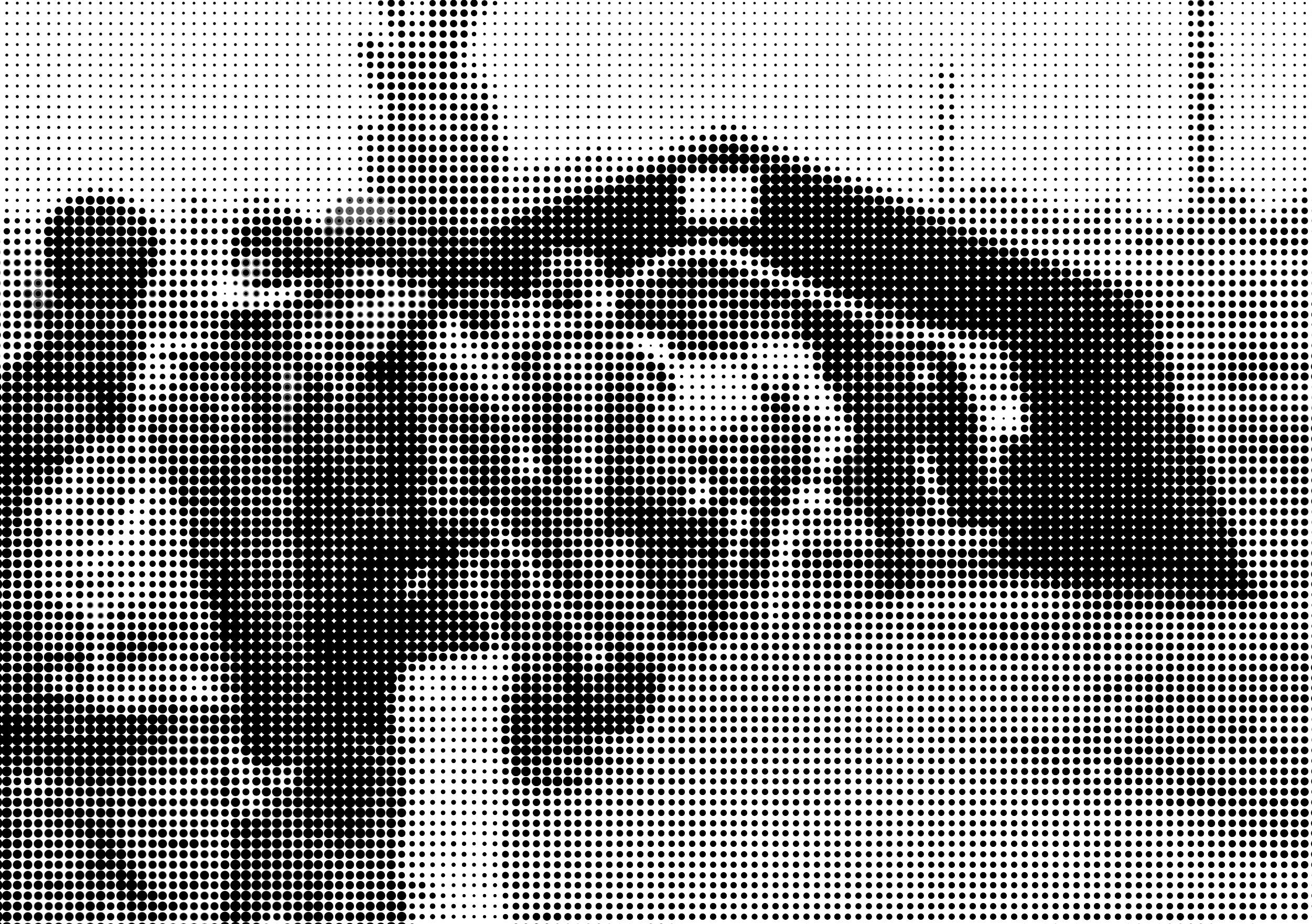
SECTION 5
INSIGHTS.
In this section, we share five key insights that will further elucidate the issues captured in the data. Some of these key themes include rising threats in the United States, which remains an important country of resettlement, the increasing trend of South-South migration which de-centers a colonial understanding of the Global North as the sole site of refuge and safety, our strong partnerships with human rights defenders in criminalized countries which power our casework and advocacy, as well as the movement restrictions and barriers to seek asylum which result in forced mobility of LGBTQI+ people at risk due to limited pathways to safety. This context is critical for understanding how we do our work, what solutions we see emerging in the future and which priority challenges we need to tackle through advocacy and programmatic response.
In 2022, the United States emerged at #8 on our list of countries where the highest number of requests for assistance originate. Notably, a significant number of these requests were received in the days following June 24, 2022, when the US Supreme Court overturned Roe v. Wade, suggesting that the withdrawal of the federal right to abortion provoked broader fears about threats to human rights. While the majority of the requests from the US in 2022 originated from US citizens (60%), 40% of requests were from nationals of 42 other countries, mainly requesting assistance in making asylum claims in the US.
Rainbow Railroad affirms the United States as a global leader in refugee resettlement and advocates for increased resettlement of refugees to this country, including LGBTQI+ refugees. However, it is critical to recognize that, like many other countries around the world, there are significant regional and local inequalities in access to safety for LGBTQI+ persons across the United States.
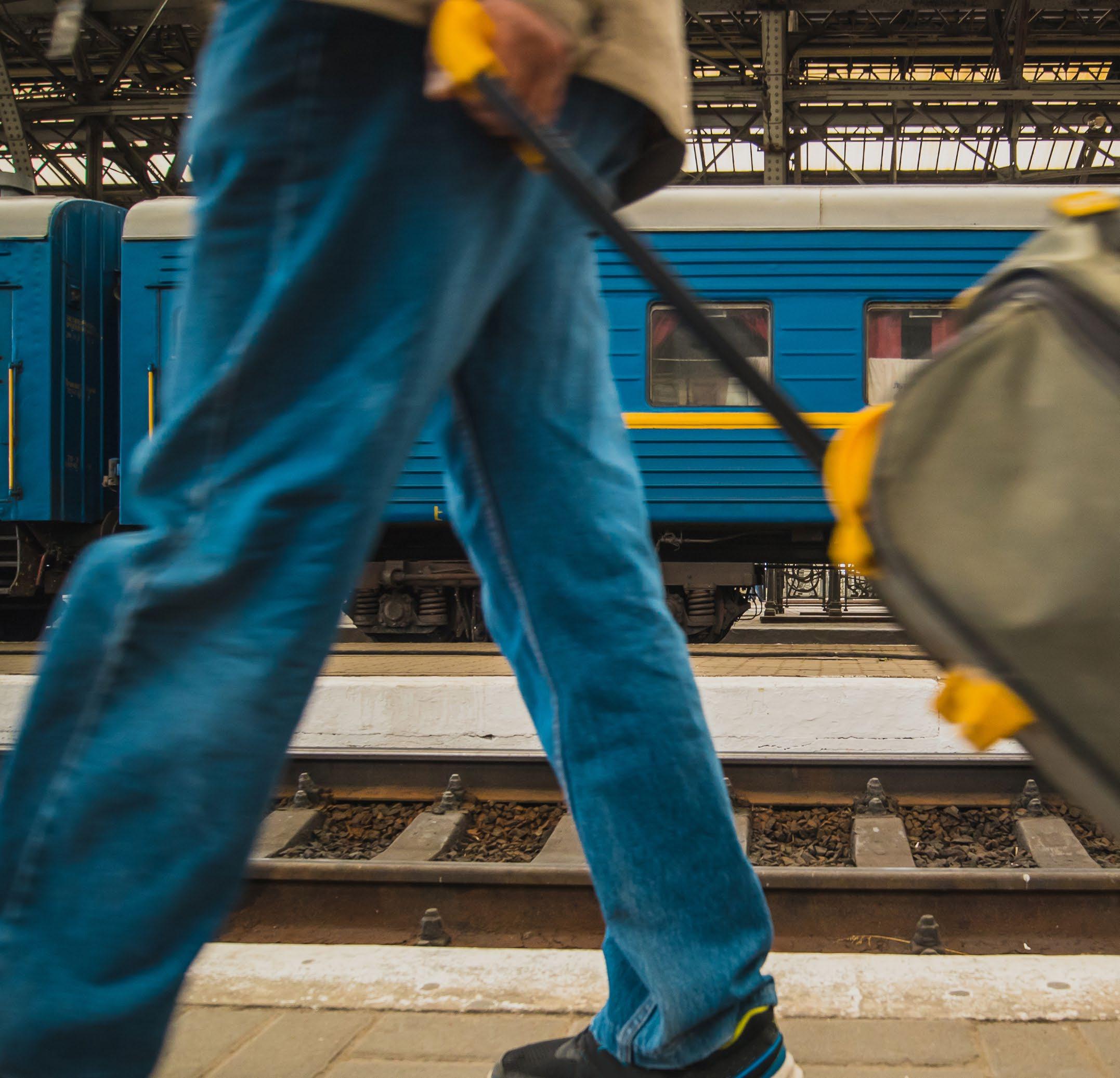
Although the Respect for Marriage Act protects marriage equality at a federal level, 2022 saw state legislatures introduce 315 discriminatory anti-LGBTQI+ bills. Although only 29 passed into law, this represents the largest wave of anti-LGBTQI+ legislation in recent US history.11
Anti-LGBTQI+ measures introduced in the US last year sought to criminalize parents for providing gender-affirming care for their transgender children, to bar transgender children from using bathrooms and locker rooms that aligned with their gender identity, and to censor classroom discussions on LGBTQI+ issues. One trans man who reached out to Rainbow Railroad expressed his fears at the worsening situation for the LGBTQI+ community, stating, “You may have heard of the rising tide of anti-trans bills being proposed — and passing — in courts across the US. This tide is only getting worse, and
RISING THREATS IN THE UNITED STATES 1.
This tide is only getting worse, and I’m so desperate to relocate somewhere safe, where I can be myself without fear.”
"
I’m so desperate to relocate somewhere safe, where I can be myself without fear.” Another trans individual requesting help expressed concern in response to a number of events, including “the overturn of Roe v. Wade, the law passed in Alabama about making providing transgender care a felony, my home state Idaho having a trigger law that will be going into effect, not to mention other ways that LGBT community members and allies are being threatened and persecuted in the United States.” Another request came from a mother facing a custody battle, as well as isolation from her family and community, as a result of her child coming out as trans.
At the same time that LGBTQI+ rights were being eroded, pandemicera border restrictions continued to inflict significant harm on asylum seekers, effectively closing the US southern border to those seeking refuge. Although the US Centers for Disease Control and Prevention (CDC) announced their decision to repeal sweeping pandemic-era border restrictions12 under Title 42, court injunctions kept the policy inplace. These policies continued in spite of scathing dissent from public health experts and immigrant rights groups. LGBTQI+ people seeking asylum are particularly vulnerable and face higher rates of violence and persecution in transit and in their home countries. The additional burden of the Title 42 expulsion order places them in grave danger at the southern border.
LGBTQI+ people in the border region are particularly vulnerable to gang violence and hate crimes. Exacerbating these safety concerns are the discriminatory barriers to support for LGBTQI+ people near the border. For example, Mexico’s government will not provide federal or state funding to shelters who serve “mixed” populations, meaning that any shelters that serve women and LGBTQI+ communities are ineligible for government assistance.13 Since the Title 42 expulsion order ended asylum at ports of entry, migrants were pushed to remote and, often, dangerous regions along the border. Rainbow Railroad has relied on its partnership with Al Otro Lado, a bi-national advocacy and legal aid organization serving migrants, refugees and deportees in the United States and Mexico. Rainbow Railroad and Al Otro Lado have worked together to advocate on behalf of LGBTQI+ refugees in the border region, and to increase access to services providing safe housing and shelter. Al Otro Lado supported 30 LGBTQI+ migrants who are HIV positive and are waiting to enter the United States. The organization screened their cases to dermine their access to proper medications and provided transportation to clinics that provide HIV medication.
MIGRATION 2.
As countries in the global north continue to see an increase in antimigrant and anti-LGBTQI+ legislation, Rainbow Railroad has sought out alternatives to global north resettlement. We have noted a positive response to our facilitation of ‘South-South Migration’. For example, through partnerships with the organization AMAL in Argentina and PASSOP in South Africa, Rainbow Railroad continues to pilot and build new routes and more durable pathways to safety in the ‘Global South’ for LGBTQI+ refugees. To elaborate on the importance of increasing avenues for ‘South-South’ Migration, we interviewed Mariano Ruiz, Projects Coordinator for AMAL in Argentina.
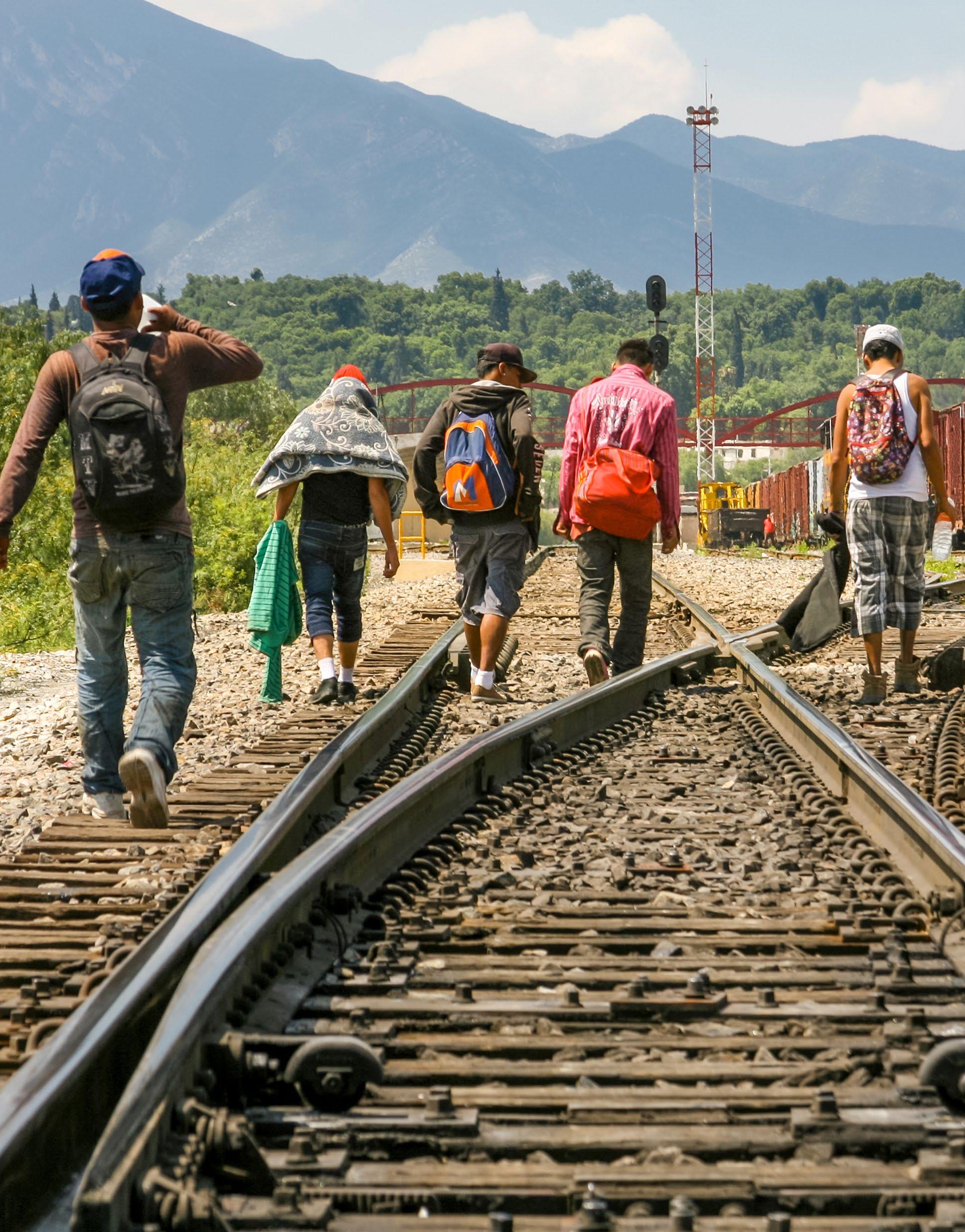
"SOUTH-SOUTH"
“Most countries in Europe are turning to the right and so we need more countries accepting newcomers, especially countries that approve progressive laws in which LGTBQI+ people can develop and express themselves freely. Argentinian society is quite open for immigration. We are a country made up of immigrants. The objective of AMAL is to make integration smoother. Thanks to the support of Rainbow Railroad we have the ability to have a stronger programmatic structure, resources, provide psychological and psychiatric support, general resettlement assistance, and things like Spanish classes for LGTBQI+ forcibly displaced persons and refugees.”
“When people get to the border they don’t see anything else but the States. We wanted to be able to screen people at the southern border because of the effects of Title 42, where we could instead offer suitable candidates alternative routes to safety - one of which was Argentina where we could provide them support and housing and a sponsorship group.”
When asked why he is committed to this work, Mariano responded , “Before working with refugees I was doing activism. That person that is migrating today, tomorrow could be me.”
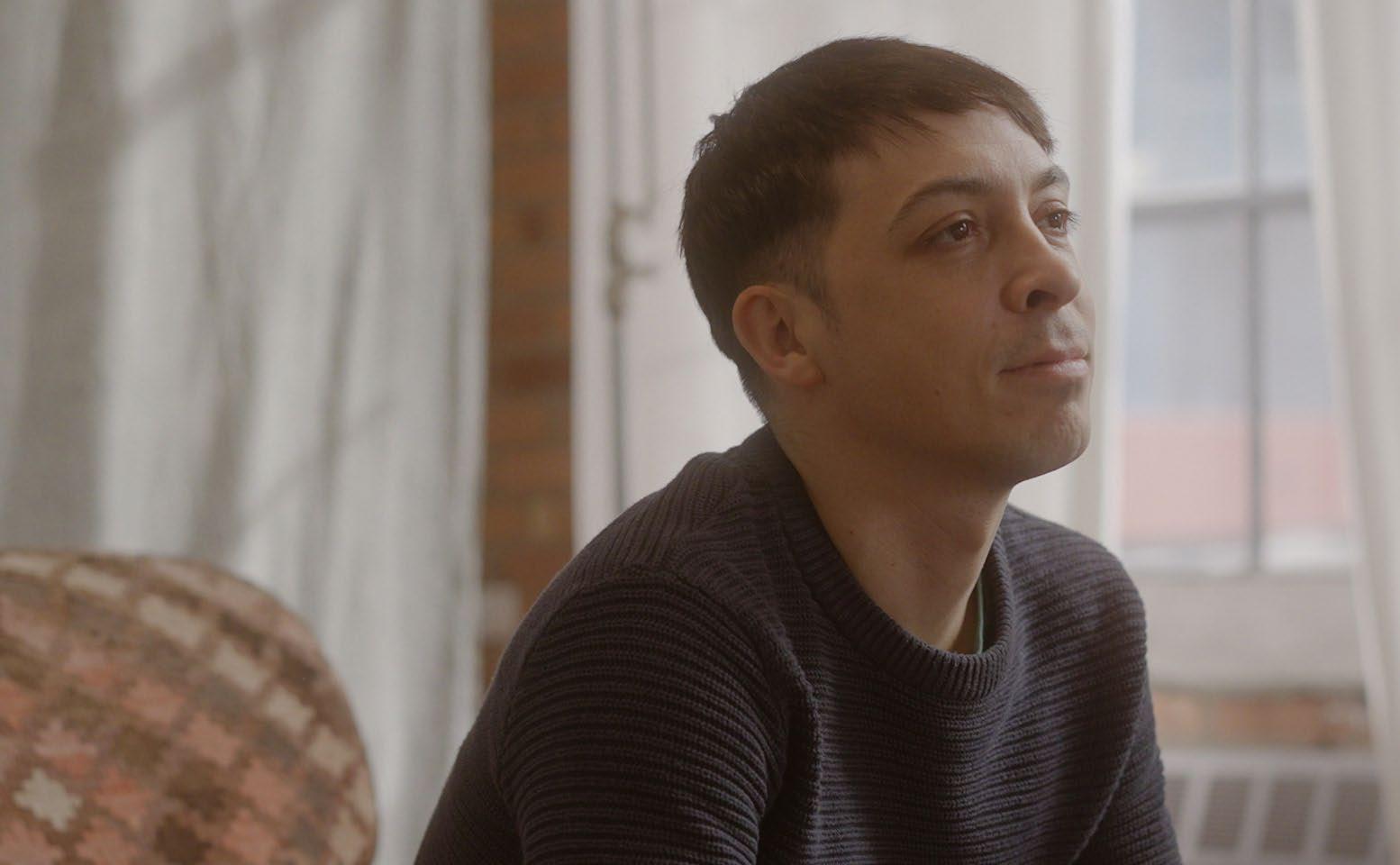
11 Human Rights Campaign. (2023, January 26). Human Rights Campaign Foundation State Equality Index: 91% of Anti-LGBTQ+ Bills in 2022 Failed to Become Law. Retrieved from Human Rights Campaign: https://www.hrc.org/press-releases/human-rights-campaign-foundation-state-equality-index-91-of-anti-lgbtq-bills-in2022-failed-to-become-law
12 Wamsley, L. (2022, April 1). The U.S. is ending its pandemic border rules. It could mean a surge in migration. Retrieved from National Public Radio: https://www. npr.org/2022/04/01/1089690477/cdc-pandemic-border-rules-migration-dhs
13 Sandoval, E. (2021, September 11). Trump may be gone, but the fight against his border wall goes on. Retrieved from The New York Times: https://www.nytimes. com/2021/09/11/us/texas-border-mexico.html
AT RISK 3.
HUMAN RIGHTS DEFENDERS
INCREASINGLY
HUMAN RIGHTS DEFENDERS FINDING SAFETY AMIDST CHALLENGES
Human rights defenders often work in dangerous circumstances and, in some cases, are forced to flee themselves. HRDs work locally, trying to advocate for changes to the laws and policies that criminalize and persecute LGTBQI+ persons, and are sometimes targeted by state actors as a result of their work.
Recognizing this, the Canadian government established a dedicated refugee stream for human rights defenders for resettlement to Canada, one of the only countries in the world to make this kind of pathway available. Rainbow Railroad advocated for the creation of this novel pathway since inception, and as one of the only organizations with the capacity to refer LGBTQI+ human rights defenders, we have had the opportunity to refer seven cases for relocation to Canada through the HRD stream. Due to the unpredictability of government crackdowns and other regional circumstances, we cannot always anticipate when it will be necessary for HRDs to leave their work and seek refuge in another country. A group of HRDs may emerge as needing urgent protection; to prepare for this possibility, our team closely monitors evolving threats to HRDs around the world.
Rainbow Railroad effectively responds to requests for help from around the world, working from our offices in Toronto, Canada or New York, USA. This is only possible because of the global partners who support our mission. To address global LGBTQI+ persecution and forced displacement, Rainbow Railroad relies on local human rights defenders (HRDs), activist networks, and organizations who help us to identify, verify, and triage requests for help and provide our team with on-the-ground insights and logistical support.
Our partner organizations around the world leverage an established network of grassroots groups that support case individuals throughout their relocation process, including the verification of cases on-theground, temporary shelters in surrounding transit countries, and staff working in destination countries.

A significant number of our cases involve case work done by trusted individuals who have long-term relationships with Rainbow Railroad staff, including HRDs who share information to verify requests for help. We also draw on the technical expertise of our dedicated staff of caseworkers, including several human rights defender colleagues who have lived experience of forced migration and/or persecution based on their LGBTQI+ identities.
A FIRST-HAND ACCOUNT FROM A HUMAN RIGHTS DEFENDER
Kendra Frith is a human rights defender from Jamaica who came to the US with Rainbow Railroad’s assistance seven years ago. Kendra is currently advocating for policy change for asylum seekers in the United States.
I was part of the execution of the first Jamaican Pride and I had so much joy when I realized advocacy is something I can do. That first Pride celebration that we had in Jamaica gave the LGBTQ community a chance to know that we are here, we are looking out for you, there is a space and we are fighting for that space and that safety for you. I’m proud that we were able to give people that space.
I didn’t want to leave my country, I did it for my safety and my family’s safety. Half of my friends are no longer in Jamaica, they left and it wasn’t easy for any of them. In no way did I want to leave, but I couldn’t stay there and be an activist, because I would have been assaulted again. Even leaving Jamaica, I never stopped advocating, I tried to do as much as I could virtually. I want people to understand that once we take this job of being a defender on, it isn’t a decision that is made lightly. It’s one thing to say, but to do it and live it is a completely different dynamic. Three-quarters of this work is not compensated, it’s what you want to do for the benefit of other people. Sometimes you feel like
you don’t want to do this anymore and that is ok. But because it is a passion, you’re always gonna find your way back and it’s gonna find its way back to you.
I have been waiting for seven years without an asylum interview. I have built a career in trucking and met so many amazing people, doing something I love. I have my dog, friends, a partner, and I want to be able to have children– but I don’t know if any of that is going to be possible. God forbid if I do get deported, what will I do then? It’s a fear, a lump, that’s there, not knowing.
How would you feel if you were displaced, forced to leave your home, and then hit with all these roadblocks to be granted asylum? I remember buying a one way ticket back to Jamaica– even if I get killed or attacked, I just can’t be in limbo anymore. But then I felt like I needed to get back into advocacy. Here’s my answer, let me start getting back into it. As advocates and defenders, I want people to understand that we’re not machines, we’re people too. You’re not just taking on the stress of yourself but also everyone you’re working with. You can lose your individuality in doing this, unless you come back to your why. Find that purpose and always come back to it.
LIMITED PATHWAYS TO SAFETY FOR LGBTQI+ PERSONS 4.
In 2022, 4% of all requests for help that Rainbow Railroad received had no route to safety and limited options for support through other channels. Our capacity to provide support to at-risk LGBTQI+ persons is limited by geopolitical factors, such as contextual risks, legal restrictions, and a lack of passport mobility.
In 2021, we identified the top ten countries of nationality with the highest disparities between the number of requests we received and the number of individuals we were able to provide with Emergency Travel Support (ETS), where people are forced to remain due to barriers to movement. These countries were: Algeria, India, Saudi Arabia, Somalia, Lebanon, Pakistan, Nigeria, Syria, Morocco, and Turkey. In 2022 data, two new countries appeared, Kenya and Jordan, replacing Somalia and Morocco. The replacement of Somalia and Morocco on this list is not because the situation has improved in either country, but because the situation in other countries has worsenedSomalia and Morocco still lack routes to safety.
Individuals of these nationalities not only face persecution on the basis of their sexual orientation, gender identity and sex characteristics, but also encounter major barriers to accessing pathways to safety. For example, as a country of nationality, Pakistan experienced a 14% increase in requests for help since 2021, meanwhile travel options remain limited for individuals seeking to relocate.
Recognizing the systemic gaps that prevent at-risk LGBTQI+ individuals from relocating, Rainbow Railroad reaches those most in need through other channels, such as safehouses, partnerships, and advocacy work. For instance, requests from Nigerians increased by 30% in 2022 (288 total
requests), and Rainbow Railroad supported local organizations that addressed basic needs, provided psychosocial and sexual health programming to individuals, as well as conducting human rights and advocacy work. Similarly, in Lebanon, Rainbow Railroad supported two organizations working on research and advocacy to identify gaps within support for the LGBTQI+ community in the country.
Rainbow Railroad continues to advocate for a direct referring partnership with governments, including the government of Canada and the government of the United States, to be able to prioritize providing routes directly to safety for those from these countries.
FAILED TRAVEL & BARRIERS TO SEEK ASYLUM
Between 2018 and 2022 we noted over 30 cases of “failed travel” for individuals as we attempted to move them to safer locations. Rainbow Railroad works with individuals to rigorously prepare them, ensuring they have all necessary documentation for travel. In addition to these precautions, if their travel fails, we work diligently with individuals to find alternative routes or options for their resettlement.
However, due to systemic barriers in global border infrastructure, certain groups are disproportionately targeted for denial of boarding. The term “failed travel” refers to situations in which airline officials, private security guards, and other non-state agents prevent the crossborder movement of persons seeking access to asylum. Airlines are incentivized to reject travelers from boarding, even those with legal documents, because governments impose steep fines or suspend airlines’ licenses if the state ends up deporting someone who is later deemed inadmissible.
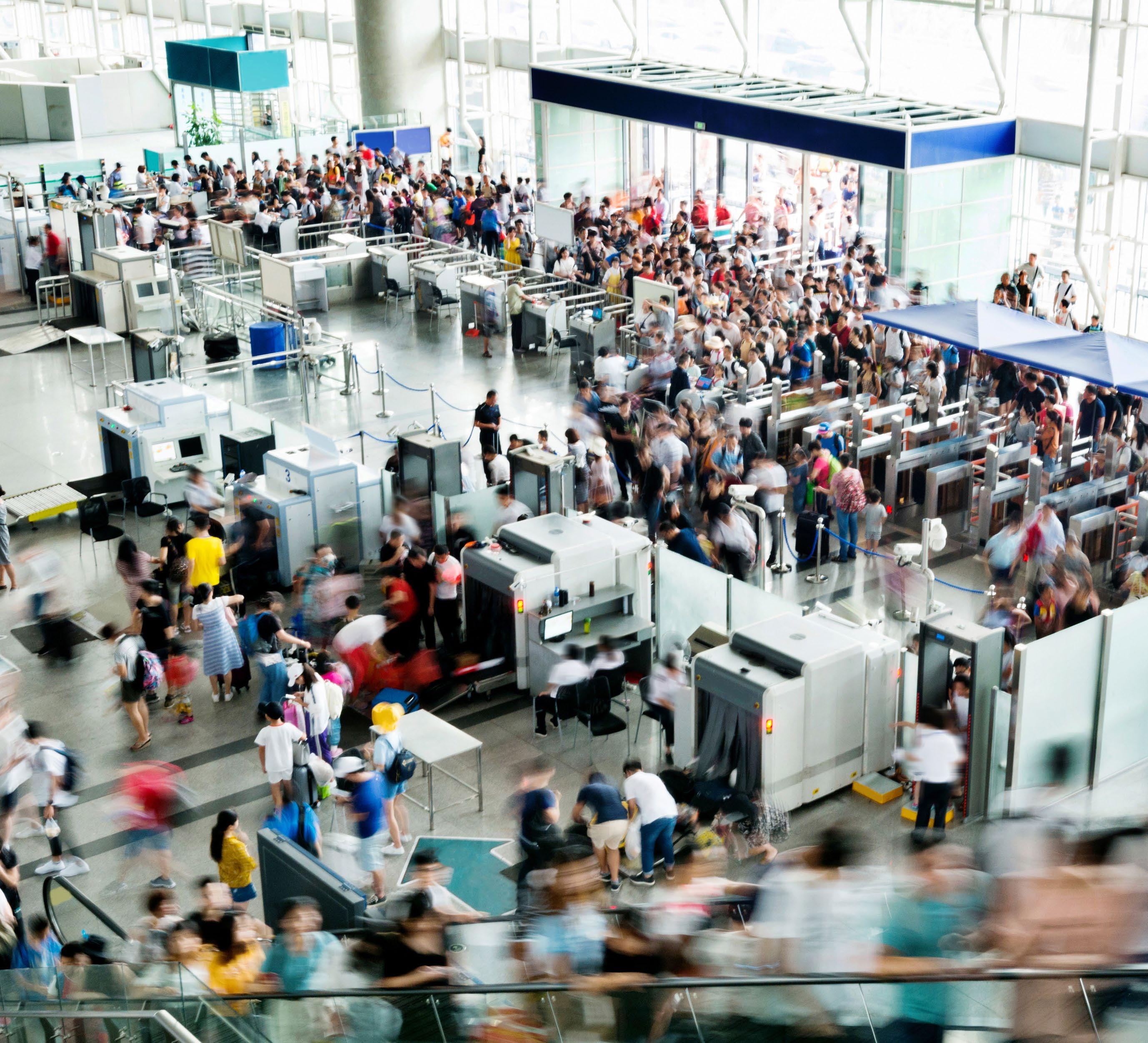
Airlines do not have the training, capacity or authority to ensure that people will not be harmed if they are denied boarding. Denials by carriers are applied selectively and inconsistently, allowing some individuals to pass through airports freely while prohibiting others from boarding flights. Airline officials are under no obligation to justify their discriminatory boarding denials, nor are they required to offer complaint or appeal mechanisms. Within a single instance of travel, multiple airline employees—for instance, at the check-in desk and at the boarding gate—might even make different decisions on whether to permit a given individual to board. This system lacks safeguards to ensure that people are protected from discrimination, including discrimination based on national, ethnic, or racial origin and gender identity and expression.
A trans LGBTQI+ rights activist from Tunisia, Jade experienced failed travel while attempting to relocate to France. Jade recounted his experience being denied boarding: “They didn’t even bother to see my name. They saw the color of my passport and told me I could not board”. Jade described his experience as the intersection of his LGBTQI+, racial, and national identities, culminating in his failed travel and inability to seek asylum in a safer country. As a trans man, it was critical for Jade to prioritize going to a country where he could seek gender affirming care. Through his own research Jade learned that, in Brazil, he would be able to access the healthcare he needed for free. Rainbow Railroad facilitated this successful journey for Jade and provided him assistance until he could find employment. Jade is now the winner of Mr. Transgender Brazil, has recently recovered from top surgery, and continues to find new ways to give back to his community in Brazil. Reflecting on his decision to go to Brazil, Jade elaborated, “I was noticing that Europe is not as safe for members of the LGBTQI+ community as it was once hailed to be. If someone is thinking of coming to Brazil, there are resources for them here to help them. I want to help them like the people here helped me”.
They didn’t even bother to see my name. They saw the color of my passport and told me I could not board."
There are many settings in transit countries outside of airports where LGBTQI+ people seeking safety face additional barriers. LGBTQI+ refugees who are living in camps in countries that are not supportive of their rights face systemic discrimination, including barriers to accessing refugee status determination, as well as violence and harassment from local communities and other refugees. Humanitarian protection agencies, which are responsible for identifying the most vulnerable and connecting them with pathways to refuge, can miss necessary cultural and linguistic norms to meaningfully understand LGBTQI+ related persecution or even subject LGBTQI+ people to discrimination. LGBTQI+ persons coming from contexts where their diverse SOGIESC is a factor in their persecution may not readily identify themselves as LGBTQI+ due to their fears of being threatened with violence if their identities are known.14
The combination of restrictions on freedom of movement, travel barriers to arrive at border where they can seek asylum, and rampant discrimination and violence in transit countries where non-LGBTQI+ refugees can find some measure of safety all add up to a lack of protection for LGBTQI+ asylum seekers and migrants. To address these systemic harms, Rainbow Railroad works closely with LGBTQI+ host community and asylum seeker networks, mapping LGBTQI+ inclusive service providers and community spaces so that we can respond to urgent protection needs, including food, medicine and safe shelter. We also advocate with governments to open pathways to find durable solutions for those who are most vulnerable. We need to work both within and outside of the international protection system to leverage creative solutions which build on the resiliency and courage of our case individuals.
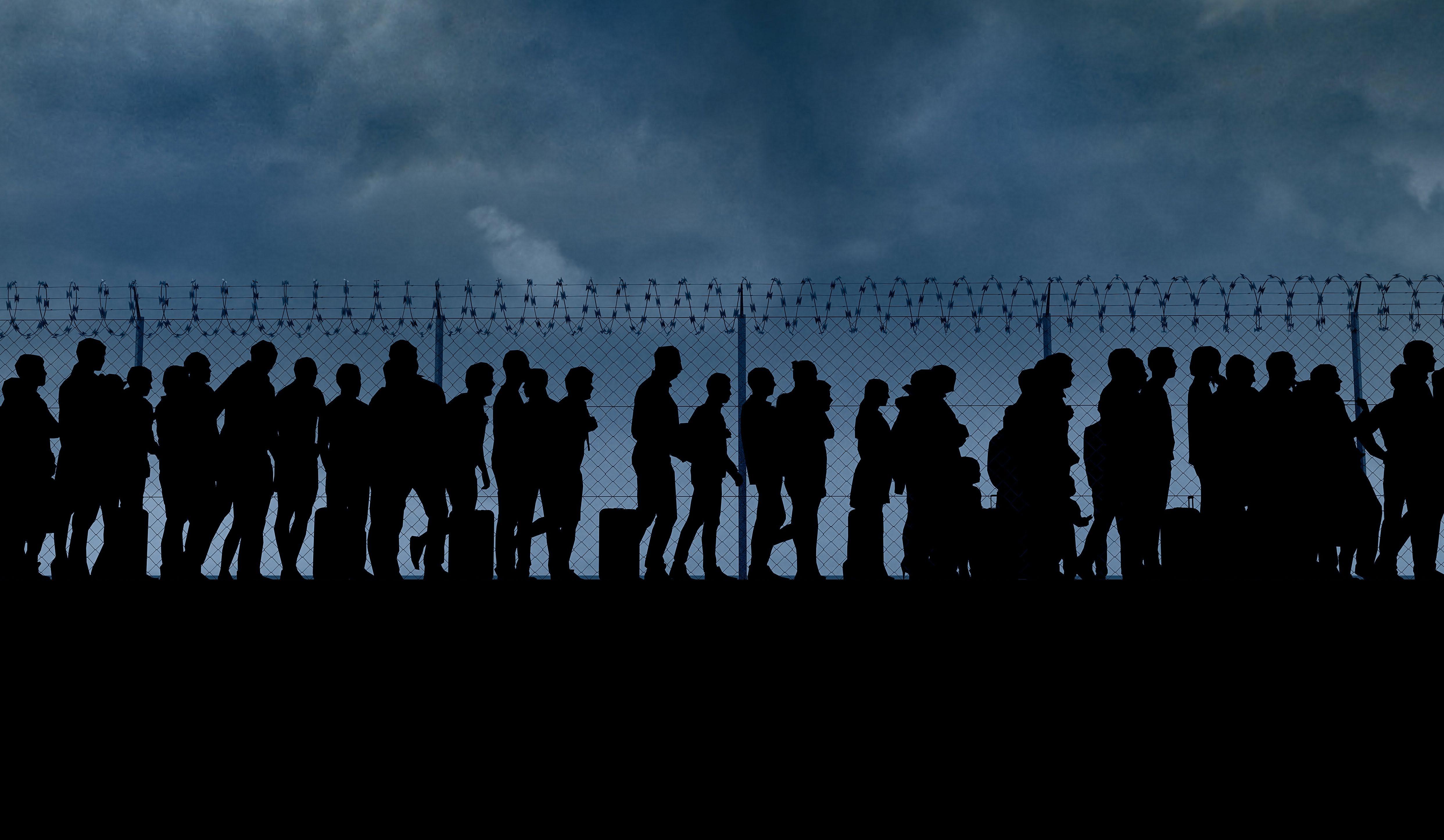
SECTION 6
ADVOCACY.
RAINBOW RAILROAD’S GLOBAL PRESENCE
To provide LGBTQI+ people with pathways to safety and freedom from state-sponsored violence and persecution, Rainbow Railroad engages in direct advocacy with governments, international organizations, and multilateral institutions around the world.
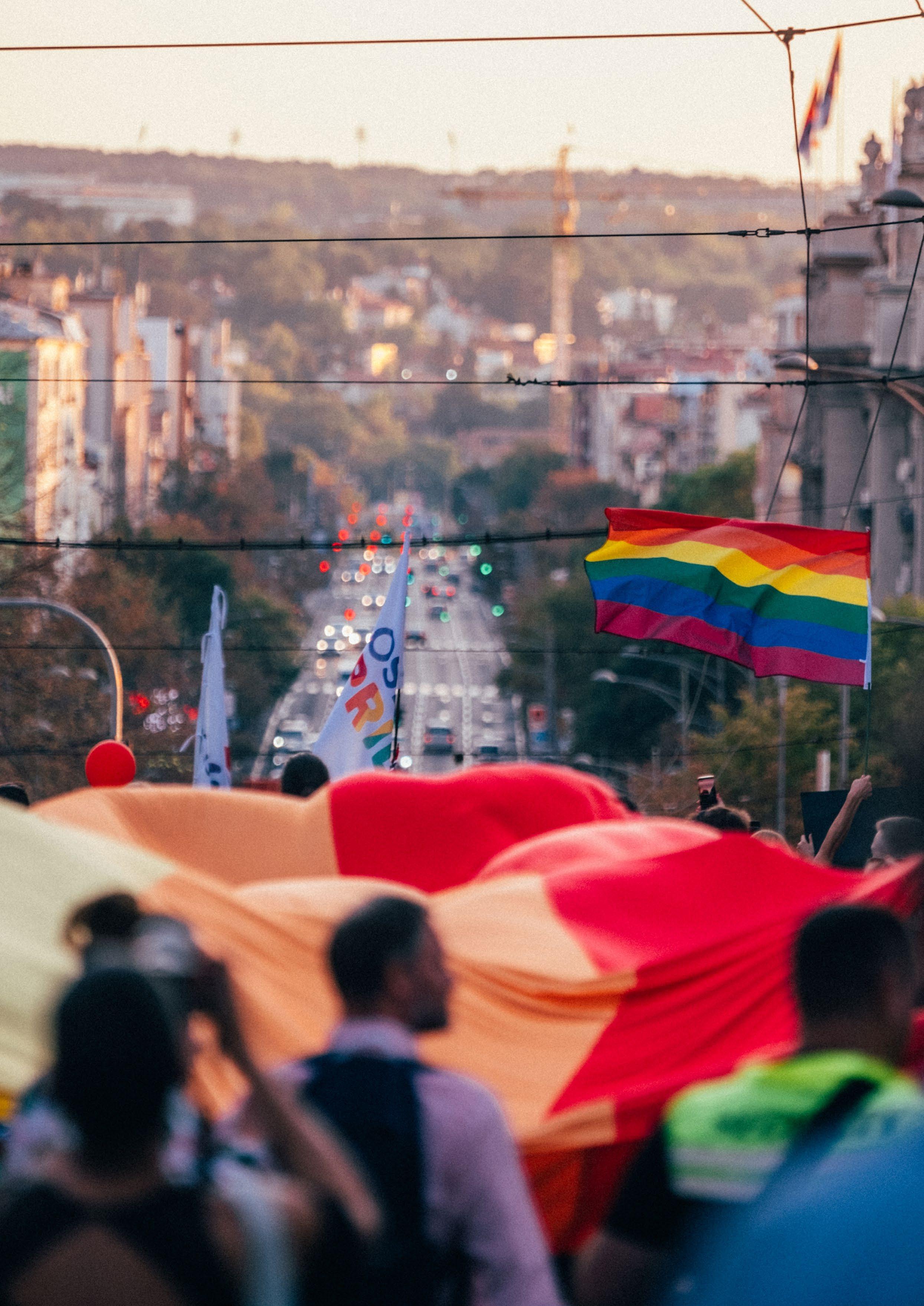
IN THE NEWS
"Individuals who have reached out to us for assistance and who we've been helping … have faced obstacles all throughout their journey. There's just been real consistent danger."
Kimahli Powell, Rainbow Railroad CEO in CBC News. “Refugee group partners with Ottawa to bring hundreds of LGBTQ Afghans to Canada.” December 2022.

"We just need a firm commitment from the government. If the government is going to identify this community as a vulnerable population they are concerned about, why wouldn't they work with the organizations who have already identified people to help them resettle?"
Kimahli Powell, Rainbow Railroad CEO in The National Observer “Rainbow Railroad’s perilous path out for LGBTQ+ Afghans.” September 2022.
“This (war) will have a massive impact on the rights movement broadly…The far-right movement and Orthodox Church in particular in Ukraine were violent and threatening to the community prior to this crisis, but they will be emboldened for sure.”
Devon Matthews, Rainbow Railroad Head of Programs in USA Today. “Ukraine was the 'queer capital of Eastern Europe.' Russia's war changed everything.” June 2022.
“Things move on out of people's consciousness. And what we're really trying to remind people is the depth of this humanitarian crisis continues at a severity that we're not paying enough attention to and pushing our government enough to support.”
Devon Matthews, Rainbow Railroad Head of Programs in CTV News
“I feel safe here finally': LGBTQ2S+ refugee from Afghanistan resettled in Canada, thousands more still trapped.” September 2022.
ON THE WORLD STAGE
Last year, Rainbow Railroad advocated for the rights of LGBTQI+ refugees in multilateral spaces around the world.
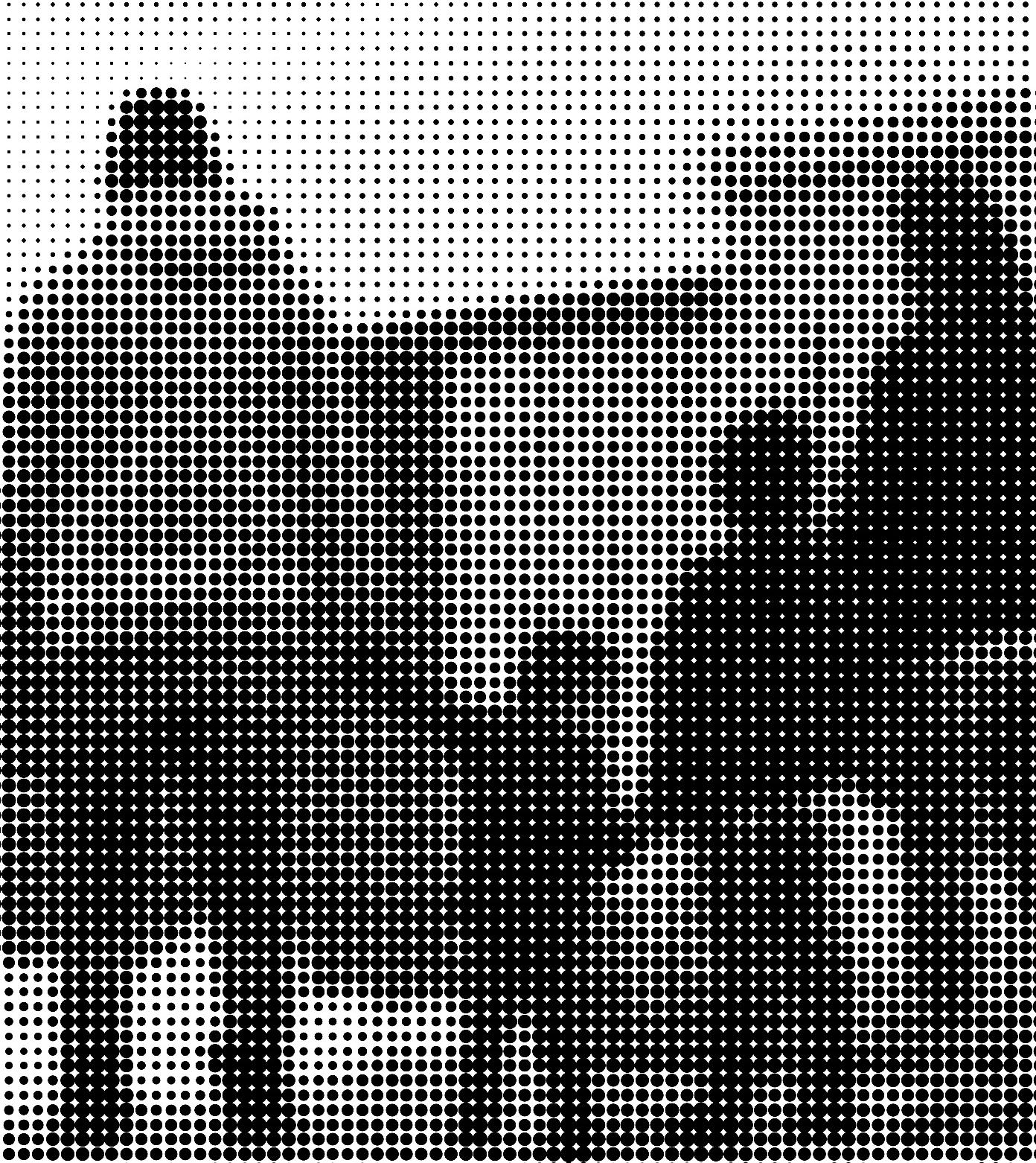

Throughout the year, we collaborated with senior leaders in the UN, in particular working closely with Victor Madrigal-Borloz, the UN Independent Expert on sexual orientation and gender identity. In 2022, the Human Rights Council voted to renew the Independent Expert’s mandate concerning the protection of individuals across the globe from violence and discrimination based on their sexual orientation or gender identity.
Rainbow Railroad coordinated with the Independent Expert’s office, and as global thought leaders we provided expertise on two official report submissions: the Independent Expert’s reports on Armed Conflict and Peacebuilding, and Freedom of Religion and Belief. Kimahli was also invited to speak on a panel with the Independent Expert at the Geneva Peace Week talk, Queering Peace: LGBTI communities in armed conflict and mass atrocity, hosted by the Office of the High Commissioner for Human Rights and Protection Approaches.
In Canada, through our continued membership on the Board of the Dignity Network Canada (DNC), Rainbow Railroad co-sponsored the International Roundtable convening in 2022. This event brought together representatives of Canadian civil society and international human rights activists, including 5 Rainbow Railroad ACTIF partners. Through the Act Together for Inclusion Fund (ACTIF) we are working with six partners across two regions, Central South America and Sub-Saharan Africa, to help build local LGBTQI+ advocacy and asylum seeker support capacity, and develop alternative pathways to resettlement that do not rely on North American and European governments.
Rainbow Railroad’s closing reception for the International Roundtable solidified our presence in Canada’s capital, with strong attendance from government officials and Members of Parliament from four major political parties speaking at the event.
Last year also saw Rainbow Railroad increase our presence in the US. In June of 2022, Kimahli was invited to the White House for the annual Pride celebration. A few months later, he returned to witness the signing of the Respect for Marriage Act, a major step forward in protecting LGBTQI+ rights.
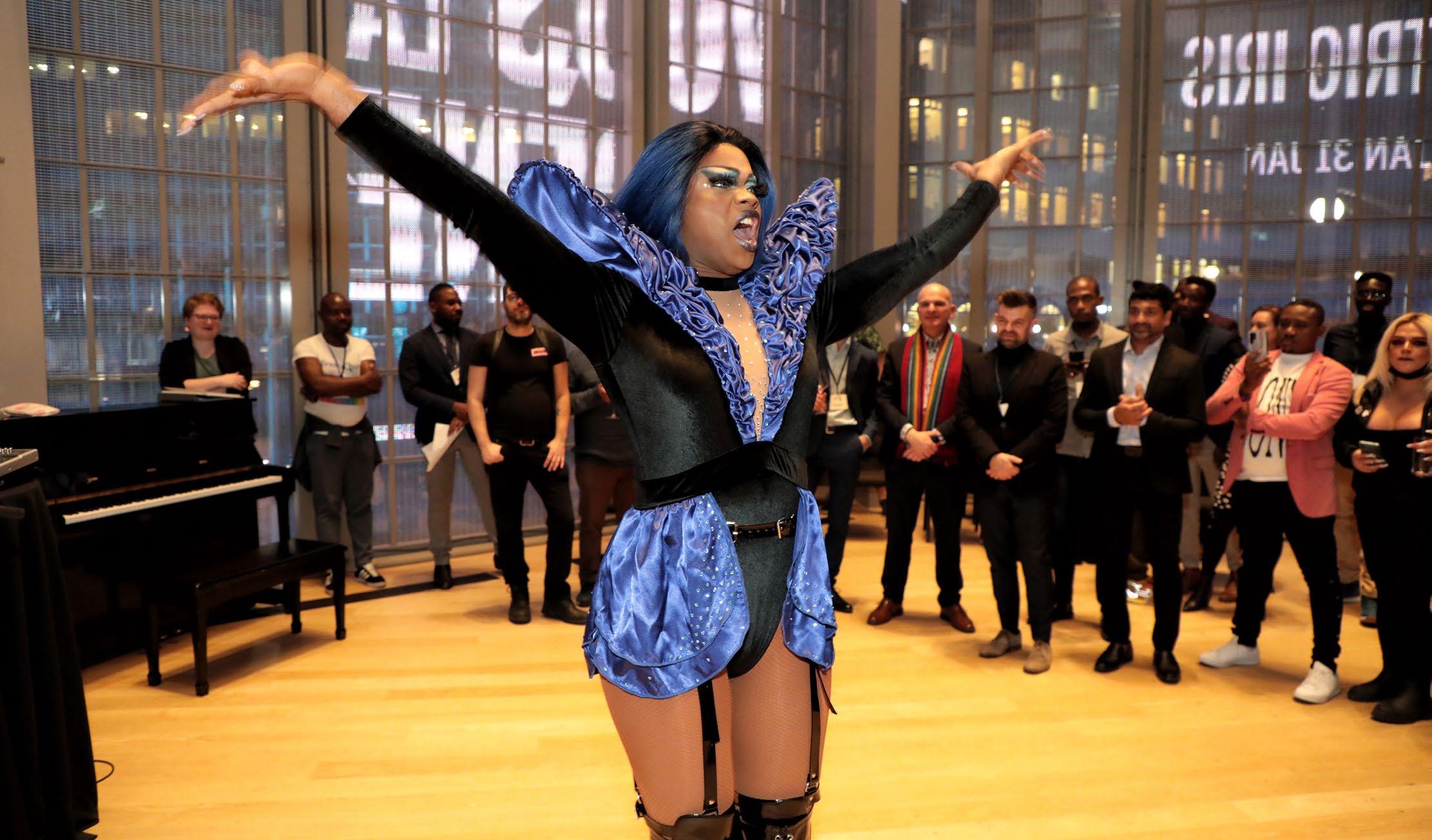
In 2022, Rainbow Railroad also joined RCUSA (Refugee Council USA) as an organizational member and Kimahli was elected as a Board Member. In 2023, we will continue to leverage our membership in this coalition to strengthen our relationships with Congressional offices and federal agencies in Washington DC. In 2022, we also presented at the ILGA (International Lesbian, Gay, bi-sexual, Transexual and Intersex organization) World Conference in California. The hybrid conference brought together almost 900 participants, including three States’ Special Envoys on LGBTIQ human rights, three UN Special Procedures mandate holders, and the Office of the Secretary-General's Envoy on Youth.

As global leaders on LGBTQI+ forced displacement, Rainbow Railroad also deepened our engagement with the Equal Rights Coalition (ERC). In 2022, we were active participants at the ERC Conference in Buenos Aires, Argentina, and led a webinar on LGBTQI+ Refugees at the ERC National Laws and Policies Thematic Group. The webinar brought together our international activist partners from Kenya, Ukraine, and Argentina to shed light on the current conditions of LGBTQI+ internally displaced persons, asylum-seekers and refugees around the world. Following this effort, Rainbow Railroad was selected as the civil society
Co-Chair of the National Laws and Policies Thematic Group and will serve until 2024.
Beyond our role in LGBTQI+ international joint-advocacy spaces, Rainbow Railroad pushed for the prioritization of discussions of LGBTQI+ persons at international fora dedicated to migrants and forced displacement.
Last year, Rainbow Railroad’s Head of Programs, Devon Matthews, attended the Global Refugee Sponsorship Initiative (GRSI) conference in Madrid, Spain. The GRSI is a partnership between Canada, the United Nations High Commissioner for Refugees (UNHCR), and a number of foundations and institutions to support the expansion of community sponsorship programs around the world.15 As a leader in delivering and advocating for private sponsorship models, Rainbow Railroad is an important voice in these conversations.
Devon was also invited to speak at the UNHCR Annual Tripartite Consultations on Resettlement (ATCR). This event is the most important multilateral forum for UNHCR, States, private sector, academia, NGOs and refugees to discuss and advance resettlement issues.
We also made significant progress towards developing direct referring partnerships with multiple governments.
REFERRAL PARTNERSHIP ON AFGHANISTAN

After 15 years working as a leader for LGBTQI+ persons experiencing forced displacement, it has become clear that establishing direct resettlement referral partnerships would be transformative for our work. In recent years, we have been engaging multiple governments of safer states for LGBTQI+ persons. We continue to push governments to establish direct referral partnerships with Rainbow Railroad.
A close partnership with the US government allowed us to refer 200 at-risk LGBTQI+ Afghans who resettled in Canada over the course of the year. The implementation of an ongoing direct referral partnership between the US State Department and Rainbow Railroad is critical, and would allow Rainbow Railroad to get more LGBTQI+ asylum seekers to safety in the United States. After our sustained #SafeWayOut advocacy campaign, in close collaboration with the Government of Canada, we secured a partnership to bring 600 at-risk Afghan refugees to Canada. Implementation of this program is ongoing and will look forward to seeing individuals resettle in 2023.
We will continue to advocate to multiple governments for direct referral partnerships as the best option for reaching LGBTQI+ asylum seekers with the most urgent protection needs.
INTERVENERS AT THE SUPREME COURT
On October 6th, 2022, Rainbow Railroad appeared before the Supreme Court of Canada in a challenge to the Canada/US Safe Third Country Agreement (STCA). This agreement blocks asylum seekers from making refugee claims in Canada if they have traveled through the US, on the basis that the US is a safe country to process their claims. The STCA is similar to agreements in other regions of the world, in which countries partner to restrict movements of people fleeing persecution.
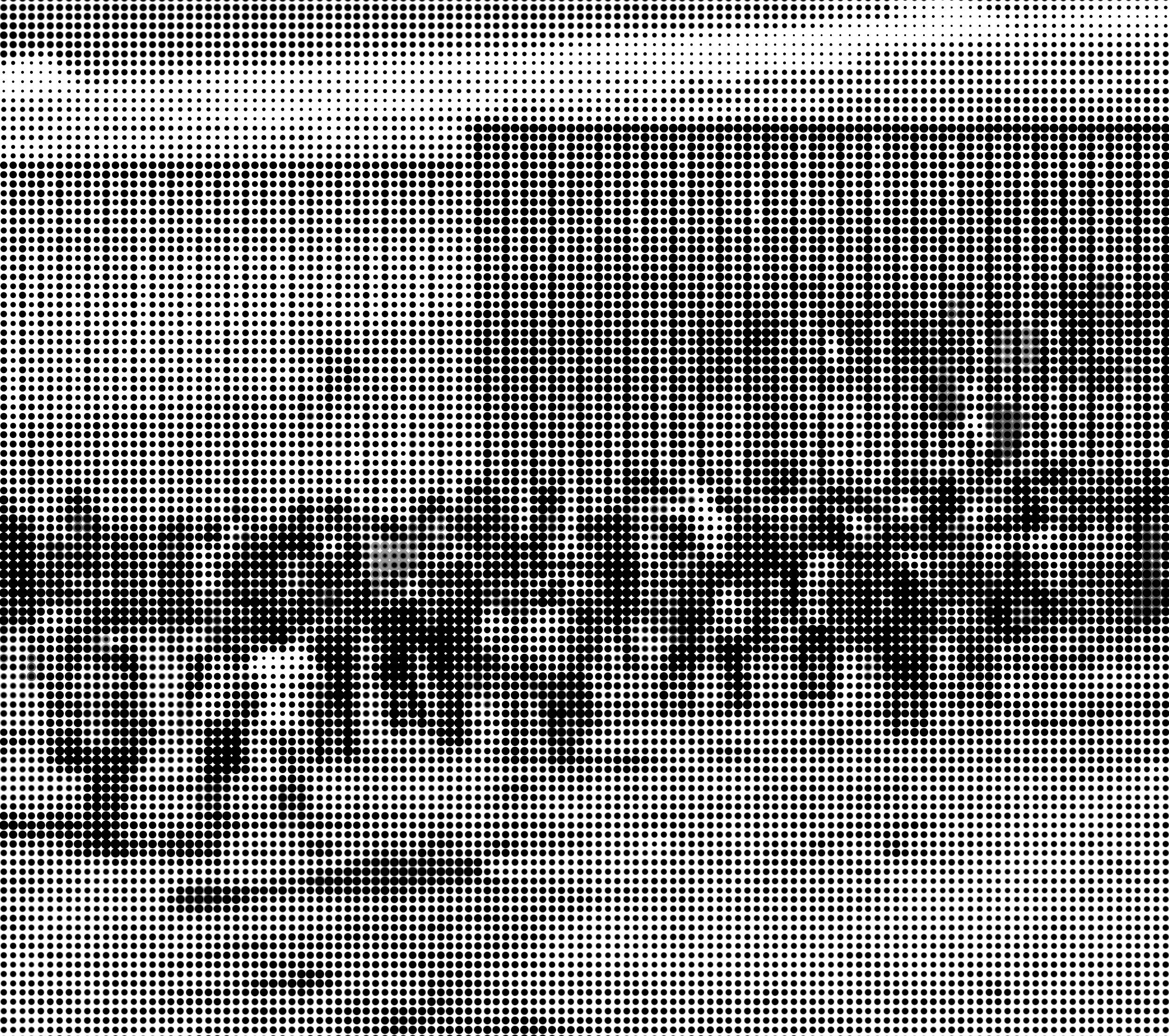
Rainbow Railroad appeared before the Supreme Court of Canada for the first time as an intervener, providing insight based on our work on behalf of refugees. We argued that Canada’s constitution should provide the same protections for refugees as offered under international law.
Unfortunately, while the Court was deliberating the legality of the agreement, the Canadian government significantly expanded the scope of the STCA on March 24, 2023. We remain staunch in our advocacy to remove barriers impeding the right to asylum. As of June 16, 2023, the Court has sent the case back to the Federal Court for determination of whether the STCA violates the non-discrimination provision of the Charter. A new trial will seek to determine whether the STCA is discriminatory in its impact on marginalized groups of refugee claimants.
THANK YOU.
OUR DONORS – CANADA
$250,000 +
LCBO
$100,000-$249,999
Deloitte Canada †
Global Affairs Canada (through EQUITAS)
Hudson's Bay Foundation
Mindset Social Innovation Foundation
Quartermain Gift Fund
$50,000-$99,999
Andrew Beckerman
BMO †
Kraft Heinz Canada
$25,000-$49,999
The Auxilium Foundation
Aviva Canada
Battista Migration Law Group
Mill Street Brewery †
Jeffry Myers
Ottawa Community FoundationJune Burland Fund
*includes fundraised amounts
† includes in-kind support
Scotiabank & Employees *
TD Bank Group †
TELUS & Employees*
The Lawrence Schafer Foundation
McCarthy Tetrault LLC †

The Beer Store
Weber Shandwick Canada †
Out Adventures
The Pride & Remembrance Foundation
RW&CO.
Steven Spencer
Ted Baker London †
TreadRight Foundation Anonymous (3)
$10,000-$24,999
Air Canada †
The Alva Foundation
Michael & Keith Battista
The Michael Baylis Foundation
Robert Brews
Brown-Forman Canada
The Canadian Tilling Foundation
Capital One
Catholic Crosscultural Services †
Anthony Chong †
Clyde & Co LLP †
Corby Spirit & Wine
Thomas Deacon
Deloitte Canada Employees
Digital Extremes
Electronic Arts & Employees *
Elephant Shoes Foundation
Caleb Goodman
Nathan Gauvin
H&M
Tyler Hyde
The Imperial Court of Toronto (TICOT)
Estate of Gerald Hannon
Donald F. Hunter Charitable Foundation
$5,000-$9,999
Annabelle Inc. & Good-Loop Ltd
Bailey Nelson Sherway Gardens †
Scott Baker
Bimbo Canada
Ray Brillinger & Cy Hack Fund at the Hamilton Community Foundation
Centre for Newcomers
CIBC & Employees *
Cineplex Entertainment LP
Clionadh Cosmetics Inc.
CPA Canada & Employees *
Exposé Noir
Fidelity Investments Canada ULC
Andrew Gillespie
GiveOut
Graham Family Foundation
La Fondation Famille Leclair
Love Good Fats
MAC Viva Glam Fund
William MacKinnon
John McNain
Scott Powell & Kirk Hill Foundation
Jamie & Dean Powers
Mark Pratt
RBC Foundation & Employees *
S.i. Systems
Search Tactix Inc.
Melanie & Dr. Eric Semlacher
Shreya Shah
Sovereign Insurance
St. Andrews Church
Andrew Swart & Michael Sacke
Toronto Police Service
Tweed Collective / Canopy Growth Corp.
Walmart Canada
Yabu Pushelberg Inc.
An Anonymous Estate, donation directed by Ben Eshref
Anonymous (4)
Grace McLeod
Scott McNeil †
Rick Mercer & Gerald Lunz
Miik Foundation
David Miklas
Munich Life Management Company
Marc Nadeau
NEO Exchange
Paul Noble
Ian Nordheimer
Points.com & Employees †*
Kimahli Powell †
Ricarda's Restaurant †
Joel Rotstein & Frank Chester
Shaw Communications & Pride@Shaw *
Ross Slater & Wayne Smith, Reach
$1,000-$4,999
ACCES Employment
Danny Agro
Muqaddar Ahmad
David Alexander
All The King's Men (Zine Charity Project) - International
Marcus Allan
Mark Allen
Owen Anderson
Wesley Andreas
John Andru
Altas Corporation
Dave Anderson
GreenShield
K.M. Hunter Charitable Foundation
Hydro One & Employees *
IN Magazine †
Kismet Fund
Karim Ladak
Roger Larios
Bruce Lawson
Liberty Mutual
Frank Lowery
K.Jason MacIntyre
Magnet Forensics
Andrew Mahon Foundation
Manulife Financial
Russell Mathew & Scott Ferguson
Martha LA McCain
Annette Street Public School
Auxiliary Crossfit
Chelsey Baidacoff
John Baird
Balzac's Coffee Roasters
Barry's Bootcamp Canada Inc.
Bruce Barnett
Guy Beaudin
Bell Canada & Employees *
Trent Berry
Big Blue Bubble Inc.
BKMAC Family Fund
BlackRock, Inc.
Kurt Blais Movember *
Dane Bland
Blumberg Segal LLP †
James Bogle & Chrissy Bozik
Alex Borovoy
Paul Brancaccio
Brandsicle †
Jay Brewster
Linda Briskin & Carole Marshall
Chris Brohman
Capabilities Inc. †
Glenn L. Smith
Jason Stone
Teranet Inc.
Jim & Judy Thiessen
Torys LLP
Ian Turner
Tyria Pride *
Universal Music Canada
University of Toronto Schools
Dan Urquhart & Mario Grech
Westcoast Wills & Estates Law Corporation
Timothy Whelan
WW Canada, Ltd.
YellowTree Grant Writing Services †
Anonymous (2)
Brett Bromley
Michael & Patricia Bronskill
David Brown †
Kelvin Browne
The Cabinet Salon Inc.
Roy Cain
Mike Callaghan
Hilary Evans Cameron
Canaccord Genuity
Canadian Equality Consulting Inc.
Carlsberg Canada Inc.
Tasha Carter
CBCL Limited
Centennial College, Public Relations
Flora Chan
Paul Chan
The Chitovas & Lawton Foundation
Joseph Cirone
Cameron Clark
Brian Clarkin
Andrew Collins
Jacob Cook
Morgen Cookson
Kimberly Connors
Rachel Courey
David Crawford
Rene Cremonese
Isabelle Crew
Crowe Soberman LLP
Bruce Daccord
Ed & Margaret DaCosta
Gaetan Daigneault
Spencer Dane & Peter Vysek
Randall Dawson & Rudy Ticzon
Jonathan DeGeer
James G Delaney
Jason Demone
Lar deSouza
François Dion
Philip Doiron
Jason Doolan
Terence Doran
Dreadkeys
Dublin Lesbian Gay Bisexual Transgendered Queer Pride Ltd.
Ecclesiastical Insurance
Eclipsys Solutions Inc.
Philip Edwards
Emma & Anya's Wedding *
The Edith & Bernard Ennis Foundation
Broderick Everitt-deJonge
Export Development Canada
Anders Fällmar
Joe Fidilio
Figure3
Dennis Findlay
Dan Flanagan & Stephen Calnen
Joseph Flessa
Flow Beverage Corp.
Fluent Media Canada Inc.
Forbes Bros. Group of Companies
Foresters Financial
Stephenie Fox
Devon Francis
Joshua Fraser
Julia Friesen
John Galbraith
Serge Gallant
Berns Galloway
JakeTobin Garrett
Phil Gazaleh
George Brown College
The Get REAL Movement
Gary & Jesse Glans
Golden Gate Graphics
Daniel-Robert Gooch
Good Cheese
Google LLC
Government of Manitoba
Graham & Colin *
Brett Grantham
Bryn Gray
Great Little Box
Mark Greenfield
Griffith Foods Limited
Joanna Griffiths
Andrew Grimes
David Grisim & Neil Chang
Shannon Guihan
Richard Guisso
Sajeed Haji
George L. Hall
Kenn Hamlin
Hanne Engineering
Hatch Inc. & Employees *
Suzanne Hathaway
Tim & Michele Hayman
Bennett Haynen
Helmutz Landscape & Interlock
Brian Henderson
Gareth Henry
Patricia Hennessy
David Highgate
Dominic Hoar
Andrew Hood
Elizabeth Howson
Larry Hughsam
Peter Husar
Jane Hutton
Steven Hutton
Minh Tam Huynh
Blair Imani †
Andrew Innes & Donald Watson
Derek Innis
The International Court Council, Inc.
Christen Irwin
Richard Isaac
Jacobs Solutions Inc. & Employees *
Edward Janiszewski
David Jermyn
Keltie Jones
JTMH Family Foundation
Jim Kapches
Paul Kaplan
Keg Restaurants Ltd. Yaletown Location
Kelly's Bake Shoppe Inc.
Kensington Brewing Company
Kentucky Fried Chicken
Ryan Kerr
Keurig Dr Pepper Canada
Mohamed Khaki
Kinaxis
John King
Karli Kirkpatrick
Nancy Kleer
Gary Klein
Michael Klein
William Klein
Brent Knowles
Philip Kocev & Andrew Mainprize
Dario Kosarac
Kroeker Farms Limited
Marcel Laberge
Lady 5 *
Paul Lancaric
R&M Lang Foundation
Laughs for Good TO
Doug Lee
Tanya Lee & John Torrey
Lisa Letkemann
Michael Lisetto-Smith
Low Down Bar
Jonathon Lyng
Martin MacLachlan
MacroHealth
Roy Male
Michael McCain
McCall MacBain Foundation
Jessica Manley & Elana Moscovitch
Paul McFarlane
Brett McGoldrick
Kevin McGuire
Keri McKittrick
Richard McLellan
Douglas Melega
Melloy/FR Limited Partnership
Jordan Merkur & Ivan Joya Gonzalez
Metrix Group
Jesse Michelin
Microsoft Corporation
Andrew Miller
Natalie Miller
Rod Miller
Sheona & Kendra Mitchell-Foster
Moden Boutique
Hanif Mohamed
Chad Molleken
Dr. Danny Monsour
Moody's Corporation
David Moore
Moosehead Breweries
Lee Moysey
Curtis Murphy
Michael Murphy & Shane Small
My Pride The Series
N. American Roof Management Services Ltd.
Netflix, Inc.
nomz
Katie O'Donovan
Blair OConnor
Gail Gordon Oliver
Khai Ong and Ryan Resch
Ontario Secondary School Teachers' Federation
Perry Orestes
Our Glowing Hearts
Pablo's Mecenat
Pacific Wastewater Ltd.
Vanessa Pandos
Paramita. Enterprises Ltd.
Greg Parsons
Peel District School Board - PRIDE Employee Resource
Group
Michael Petty
PIMCO
Matthias Platz
The Pop-Up Chapel Co.
Katy Potter
Poweryoga Etobicoke
Andrew Prosserman
Provincial Employees Community Services Fund
Brian Provini
Andrew Pruss
Rainbow Refugee Society
Robyn Rapske
Nicholas Regimbald
Alejandro Reyes García
Jason Reynolds
Josee Rheault
Heather Richardson
Jeffrey Richstone
Phil Roberts
Robert Robinson
Rogers Communications Canada Inc. †
Brian Rosborough
David Rosen
Andre & Brock Rowland Foundation
Chani Roy
Joe Rubin & Casey Gaunt
Jospeh Salvador Ferrer & Juan Carlos Fernandez
SAP
Robert Sardellitti
John Savoie
Kevin Schultz
Justin Schurman
Philip Schwab
Andrew Senyi
Rupen Seoni
Corey Sheldrick
Claire Sieffert
Amanda Siegle
Richard Simm
Jessica Simon
Singing Out! The Lesbian & Gay Chorus of Toronto
Nicholas Skrypek
Robin Smith-Stephens
John Soer
Sole Power Productions †
Karen Somerville
Southlea Group Limited Partnership
Ronald Southerland
SPINVFX
Stage West Dinner Theatre
Staples
Starbucks Foundation Charitable Fund
Douglas Steckle
Pamela Steer
Neil & Anne Sternthal Family Fund
Martin Sterling
Gordon Stirrett
Scott Stirrett
Ramesh Sukhnandan & Rahim Chunara
Brian Sutton
William Svihovec
Sweaty Betty's
Emily Taylor
Gregory Taylor
Stephen Telka
The Thunder Agency *
Erin Thurston
Jill Tinmouth & Dianne Davis
Susan Toller
Matthew Tomasi
Vincent Tong
Toronto Gay Hockey Association
Toronto Moto Scooter Club
Toronto Summer Social - A Night in the French Quarter *
Julio Torres
Paula & Tim Turner
Olivier Trudel
Tyria Pride
Lesley Vaage
Willie Valentine
Marinus Van Vliet
Rob Vanderheyden & Ian McKay
Jennifer Vella
Vertex Pharmaceuticals
The Upside Down Tree, Inc.
Rod & Betty Wade Endowment Fund at Calgary Foundation
Jeff Waring
Christopher Watson
Peter Eliot Weiss & Michael Sweeney
Jesse Weening
John M. Whillans
Mark Wilson
Rodey Wing
James Wood
Jinelle & Baylee Woodley
David Wong
Alyce Wright
Matthew York
York Mills Collegiate
Jamie Young & Glen Watson
Nora Young & Rosanna Nardi
Z Zurich Foundation
Laura Zajacz
Alex Zandi
Anonymous (43)
OUR DONORS – UNITED STATES
$250,000 + Yield Giving
$100,000-$249,999
lululemon
R.Martin Chavez
$50,000-$99,999
Chicago 5 Lives *
Andrea Choiniere
Choose Love
$25,000-$49,999
David Blatt & David Moore
Boucher Charitable Gift Fund
The ARVD Foundation
Braze for Social Impact Fund
Caleb Burson & Timothy Gug
Keli Christy
Dignity Memorial
Everyman Jack †
$10,000-$24,999
Christian Asmar AutoDesk, Inc.
Bank of the West
Andrew Beckerman
Lawrence Bennett
The Points Guy
The Yankee Candle Company, Inc. †
Freedom House
Human Rights Campaign Foundation
The Kolasa Foundation
Reginald Lewis
Alfredo Lanier & Stewart Hammer
David Lapham & Clark Mitchell
Daniel Mallory
Ross Moody
Neat Dude
Fotios Pantazis & Lee Bell
$5,000-$9,999
Aegon Transamerica Foundation
Apple Inc. & Employees *
Berger Family Foundation, Inc.
Berger Shack Gives Back x Neat Dude *
Eric Casper
Maxine & Irving Castle Foundation
Clark Pellett & Robert Kohl
RHC Hospitality †
Safe Passage *
Serendipity Foundation
Eliot Simon Sustenance Fund
Stonewall Sports Chicago
Team Liquid
Jeremy Vogel
Patrick L . Weber & Marti A .M. Morfitt
Anonymous (1)
GLBT Fund of America
PVH BV
Paul Farr & Ryan Ellis
Gill Foundation
Brian Kelly
James Kinsella & Robert McNeal
The Lefkofsky Family Foundation
Qatalyst Partners
Anonymous (1)
Lukas Ceha
Mark Colclasure & Charlie Potts
Creative Inc.
D Squared Gay Gents Fund
The FAF Foundation - Charles H. Garrido,
Jr. and Jason Mark Roberts
Charles W. Farnham III
A.J. Goulding
Brandon Green
Arthur M Kaplan & R. Duane Perry
George David Kerlick
Kirrin Finch
Timothy Kirsch
Jonathan Kratz & James Kuerschner
David Manuel Martinez
$1,000-$4,999
1 Year Stream-a-versary 24h Stream *
Abbott Laboratories
Brandon Clarke & Matthew López
Comcast NBC Universal
Dan and Lynze Cummins
FH Operating
Mark Heumann & John Millea
Accenture plc & Employees *
David Adler
Adobe Inc. & Employees *
All The King's Men (Zine Charity Project) - USA
All-Star Tattoo Co. LLC
Jay Allen 65th Birthday Fund
Michael Anderson & Timothy Buckenmyer
Bentley Meeker †
Moelis & Company LLC
Vivek Moitra
Robert Half Recruiters & Employment
Agency
SADA *
Norman L . Sandfield Charitable Fund
John Schmieder & Bryan Wagner
Stephen Eric Schuman
Seraphim Media LLC for SeraPRIDE
Spotify
Traub Lieberman Straus & Shrewsberry LLP
Twitter, Inc.
United Airlines, Inc. †
The John & Marilyn Wells Family Foundation
Eli Zal
Zivin Family Foundation
The Zoetis Foundation
Anonymous (1)
Anheuser-Busch InBev & Employees *
AppDynamics LLC
Richard Appel
Jonathan Aumais
AvBrand, Inc.
Axis Specialty U.S. Holdings, Inc.
Mike Balaban
Bank of America
Jacob Barnes
Richard Barry
Vic Basile
BentallGreenOak (US) Limited Partnership
Beyond Giving *
Mark Bjerke
The Black & White Party Inc.
BLUF - Breeches & Leather Uniform Fanclub *
Elizabeth Book
Fred Bove
David Bowersox
Douglas Braun-Harvey & Al Killen-Harvey
Robert Breit
Joseph Brell
Stephen Brockman & John H Willoughby
Jerry Brooks
Bulova Gale Foundation
Camp Boneyard, a Multimedia Festival *
Capital Bears
Captain.tv
Roberto Castellanos
Celheals *
Ian Challis
Kun-Jang Chang
Laura Cherny
Chris and Kirk *
Cisco
Howard Clauser
Clyde & Co LLP
Daniel Conroy
Jeremy Cooper
Jeff Cordry
Coupa Software
John P. Cummiskey
Rachel Cunliffe
Curious Nature
Customink
J D
Keyvis Damptey
Mark Davis
Anthony De Filippis
Deed
Departo, inc. †
Diageo †
Bernard DiCasimirro
Disguise Pride *
Doyle Dreiling
Martin Duberman
Earthgrasper
Elder California Foundation
Michael Eldritch
Thea Ellis
EM Presents
Episcopal Church of the Atonement
Teresa Emans
Martin Erwin
Fantastic Fund of the Sacramento Region Community Foundation
David Fernandes
Richard Field
Sharon Finden
Flow Beverage Corp.
Fools x Neat Dude *
FrameRate LLC
Pierre Frinault
Lawrence Flamholtz
Holly Flow
Lars Förberg
Elizabeth Ford
Peter Frank & Michael Bailey
Karin Fredriksson
Christopher Freeman
Katie Frehafer
Fruugo.com
Kurtis Gabriel
Richard Gallagher
Gates Foundation & Employees *
Genentech, Inc. & Employees *
Bryan George & Stephen Pielocik
Ghost Studio SRL
Drew Glick & Alan Miles
Goldman, Sachs & Co
Google LLC
Jason Goslin
Jesse Graftenreed
Joseph Geierman & B.J. Abbott
Zachery Gillette
Green Koi
Greenhouse Software
Meg Grounds
Guidewire Software
Thomas Gulini
Howard Hahn
Tyler Hall
Hannon Armstrong Capital, LLC
Jie Hao
Frances Harnage
Allan Heinberg
HELM Life
Telaireus Herrin
Geoffrey Hiler
The Himmel Family
Home Partners of America & Pathlight *
HP Inc. & Employees *
HUBS DragRace *
Brian Hudson
John Hughes
Witold Huzior
Jessica Ibbitson
Daniel Ignatoff
Ipswich School
Jacobs Solutions Inc. & Employees *
Jennifer James
Christopher Jenkinson
Jewish Communal Fund
Johannes Leonardo
Stephen Johnson
Dr. Albert P. Jones & Djusmin Adi
Jeffrey Jones
JUUL Labs
Andreas Kambanis
Marta Kauffman
Kearney
Shahida Keen
Sean Kelly
Jacob Kile
Ian Klier
Bruce Koff & Mitchell Channon
Joseph Koipally
George Kondos
Eric Kratsa
John G. Kroll
Lazysnout Pride *
Grace Lee
Albert Lepage
Paul Lerner
Doug Lester & John Mandeville
James Levinsohn *
Thomas Liao & Beverly Sha Charitable Fund
Daniel William Lias
The Londoner Hotel †
Chris Lorway & John Austin
Mabbly Pride *
Makeship Ltd.
Ashley Malinowski
Brandon Marianacci
Ernest March
Paul Marsolini
Salvatore Manzi
Janelle McAfee
Stacey Mcculloch
Jesse McElhaney
Dr. Susan McEwen-Fial
Eric McGinnis
Conor McKenzie
Mary Hope McQuiston
Kiyan Mehdizadeh
The MeherBaba Fund
Microsoft Corporation
Jeff Michie Mindbody, Inc.
Nicholas Moede
Richard Morais & Robert Radley
Justin Morgan
Jonathan Morrow
Patrick Murphree
Norma Murray
Mweor LLC
Ted Newman
North Travel Service, Inc.
Numerator Inc.
Nvidia Corporation
Brian O'Donnell
Rick Olanoff
Daniel Oliverio
Orix Foundation
The Osprey Restaurant - 1 Hotel Brooklyn Bridge †
Isaac Paez
Park Lane Hotel †
Ralph Pellecchio
James Pelletier
Nathan Richard Perera
Jessica Pierpont
Nicolas Plump *
Poetic License, Inc.
William Poulter
Pride Hunt *
David Prindable
The Prismatic Engine *
PRR, Inc.
Ernest Pusateri
Pythian *
QUIZ Clothing
Raining Rainbows with RainyGames *
Raytheon Technologies
Red Nucleus
Elaine Rabinonwitz
John Reed
Jonathan Reel
Sara Rhoades
Dan Robbins
Matthew Robins
Jefferson Rogers
Nathan Rose
Jeffrey A. Rouse
Kiran Rupakula Salesforce.org
Salvatori Official †
Sam's Second Streamaversary *
Samily x Team Neat Dude *
Saugatuck LGBT Charitable Foundation
Jessi Sauter
Jared Schwartz
Edward Scott
Scott Family Foundation, Inc.
Jim Secor
Sempra Energy
SICK, Inc.
Debra Sikanas & Russell Radford
Pam Simpson
SIMSSAV *
David Skeist
David Smith
Snapchat
Altman Solon
John Spangler
Jeff Stallman
Starbucks Coffee Company & Employees *
State Farm Insurance
Star Stater
Support the Rainbow Railroad! *
Mark Stephanz
Erica Stith
Jon Taylor Steen
Kevin Steen
John Steffens
Robin Lord Taylor & Richard DiBella
Robert W. Thiele, Jr
Kirk Thomas
Brian and Todd Thurston Bralczyk
TMA Tarot Zine
Miranda Trieston
Tropikali Festival
Christian Tuchscherer
Robert L. Tulini
Tim Turner & Joe Carberry
Unified for Pride
Cristianna Vallera
Jerre van den Bent
Variant: A Loki Zine
Kelly Vye
Andrew Wachtfogel
Benjamin Wade
Ray Wallach
Timothy Warmath & Ed Comber
Waukegan Friends Corporation
Mark Webster
Melissa Werneck
Aaron Jase Whipple & Frank Buccola
Andrew Whitney Wildones x Neat Dude *
Andrew & Jules Wilshinsky
Darrell Windle & Dave Samber
Winter In Windenburg *
Wiqy x Neat Dude *
Dale Woods & James Cundiff
The Woodstock Academy
Joel Yambert
Christian Yoder & Jonathan Miller
Tze Yep
William Young
Margie Morrison Zivin & Mark Zivin
Zoom Video Communications
David Zwirner Gallery † Anonymous (5)
OUR STAFF
Kimahli Powell
L.L.D (Hons) Chief Executive Officer
Julien Michel
Sr. Administrator, Executive & Strategic Planning
PROGRAMS
Devon Matthews
Head of Programs
Joselynn Crosby Programs O fficer
Adriana Espinosa Director, Cash Assistance & Emergency Travel Support
Noah Gabigogo
Program O fficer, C asework
Gareth Henry Senior Programs O fficer, Casework Support
Sizwe Inkingi
Program O fficer, Transit Country Engagement
Joshua Jenkins Programs O fficer
Lily Kurtz Program O fficer, Complementary Pathways USA
DEVELOPMENT
Dane Bland Head of Development
Yazan Alhajali
Development O fficer, Institutional Giving
PaxSantos Liaison to the CEO
NishinNathwani Sr. Advisor
Timothy Chan
Director, Communications
ScottFerguson
Director, Partnerships
KevinLemieux
Development Officer, Administration & Donor Relations
PaigeMacLean Program Officer, Complementary Pathways Canada
TahaMairaj Program Officer, Partnership Grants
Maicel Neema
Director of Crisis Response Complementary Pathways & TCE
BrandonPearl Program Officer, Emergency Travel Support and Cash Assistance
Kiana Reyes Programs Officer, Mental Health & Wellbeing
DerekSebastian Programs Officer, Intake & Case Support
RicardoSimpson
Program Officer, Crisis Response & Complementary Pathways
MiloStewart Programs Officer, Intake & Case Support
SummerYoung
Senior Program Officer, Intake & Information Services/Referrals
ChineloOnyeka
Development Officer, Stewardship
IMPACT
Kathryn Hampton
Head of Impact
Monique Sereneo
Director, Monitoring, Evaluation & Learning
OPERATIONS
Becky McFarlane
Head of Operations
Sandi Baker
Sr. Accountant
Rafale Chouinard
Director, Administration & HR
Aaron Hewitt
Logistics O fficer
Timothy Hutten
Director, Volunteer Engagement
Michaelle Jung
Sr. Administrator, HR
Craig Palmer
Senior Development O fficer, Events
Emma Reid
Communications O fficer
Brittany Skerritt
Senior Development O fficer, Community Giving
Enloe Wilson
Development O fficer, Major Giving
Curtis Wackett
Programs & Policy Research O fficer
EmilyLoebach
Sr. Finance Officer
MaraNiculae Office Administrator
LatoyaNugent
Director, Community Engagement
ShailiShah
Director, Finance
Michael Anderson Director, Philanthropy
Kathryn Busch Director, Donor Relations
BOARD OF DIRECTORS
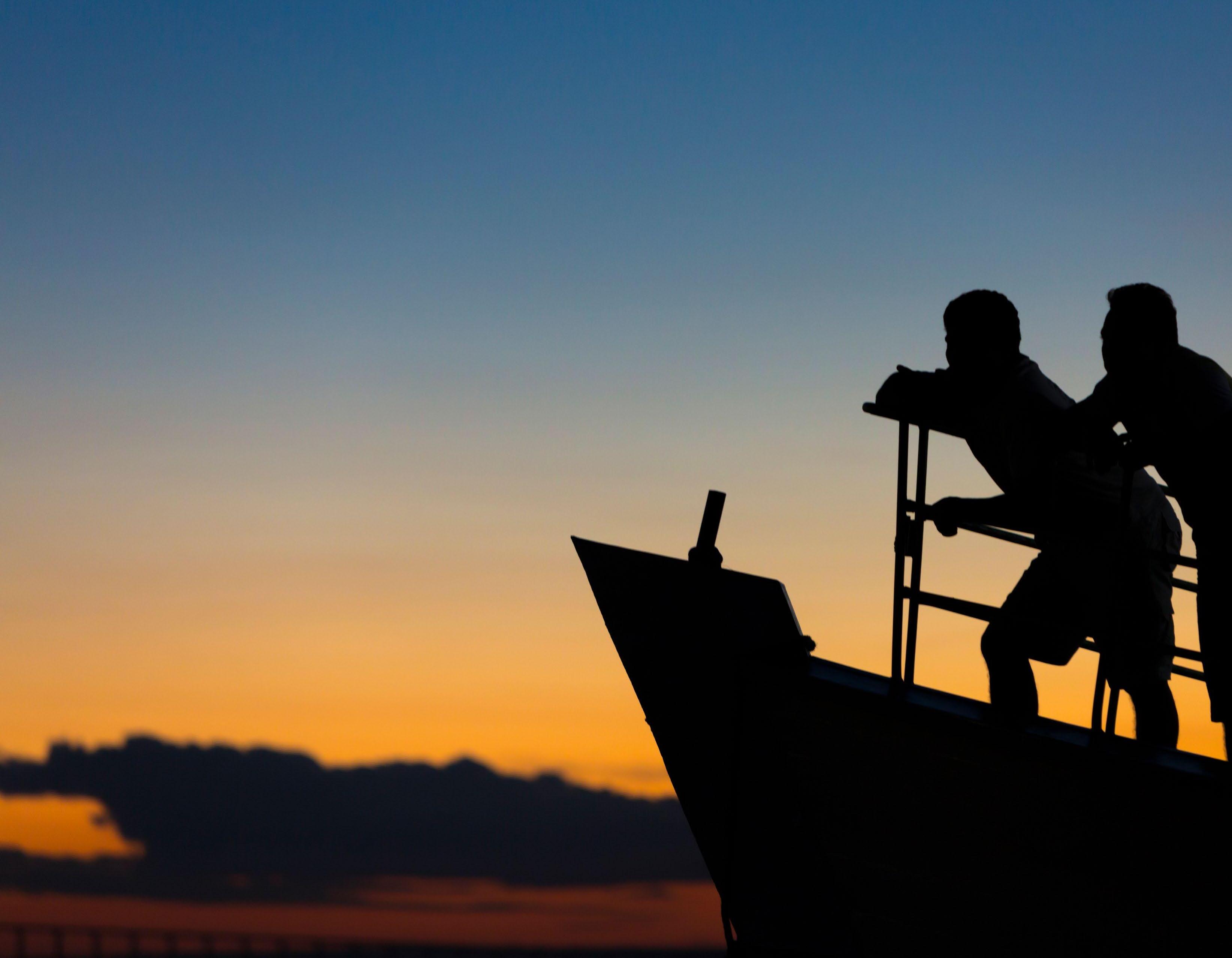
CANADA
Caleb Goodman, Chair
Bruce Koff, Vice-Chair
Anne-Marie Vanier, Secretary
Ian Gregoire, Treasurer
Al Ramsay
Andrew Swart
David Dubrovsky
UNITED STATES
Bruce Koff, Chair
Ian Gregoire, Treasurer
Edafe Okporo, Secretary
Devin O'Neill
Edafe Okporo
John McNain
Karen Haycox
Krista Hill
Malik Brown
Muneer Panjwani
Karen Haycox
Malik Brown
Muneer Panjwani
STATEMENT OF OPERATIONS & NET ASSETS
CANADA
UNITED STATES
USD*
EXCESS OF REVENUES OVER
For the year ended December 31, 2022.
$4,282,890 USD
*In November 2022, Rainbow Railroad USA received a transformative unrestricted gift of US$5M from the MacKenzie Scott Foundation. These funds have enabled the organization to establish an operating cash reserve, supporting ongoing operations and strategic initiatives to further our mission.
